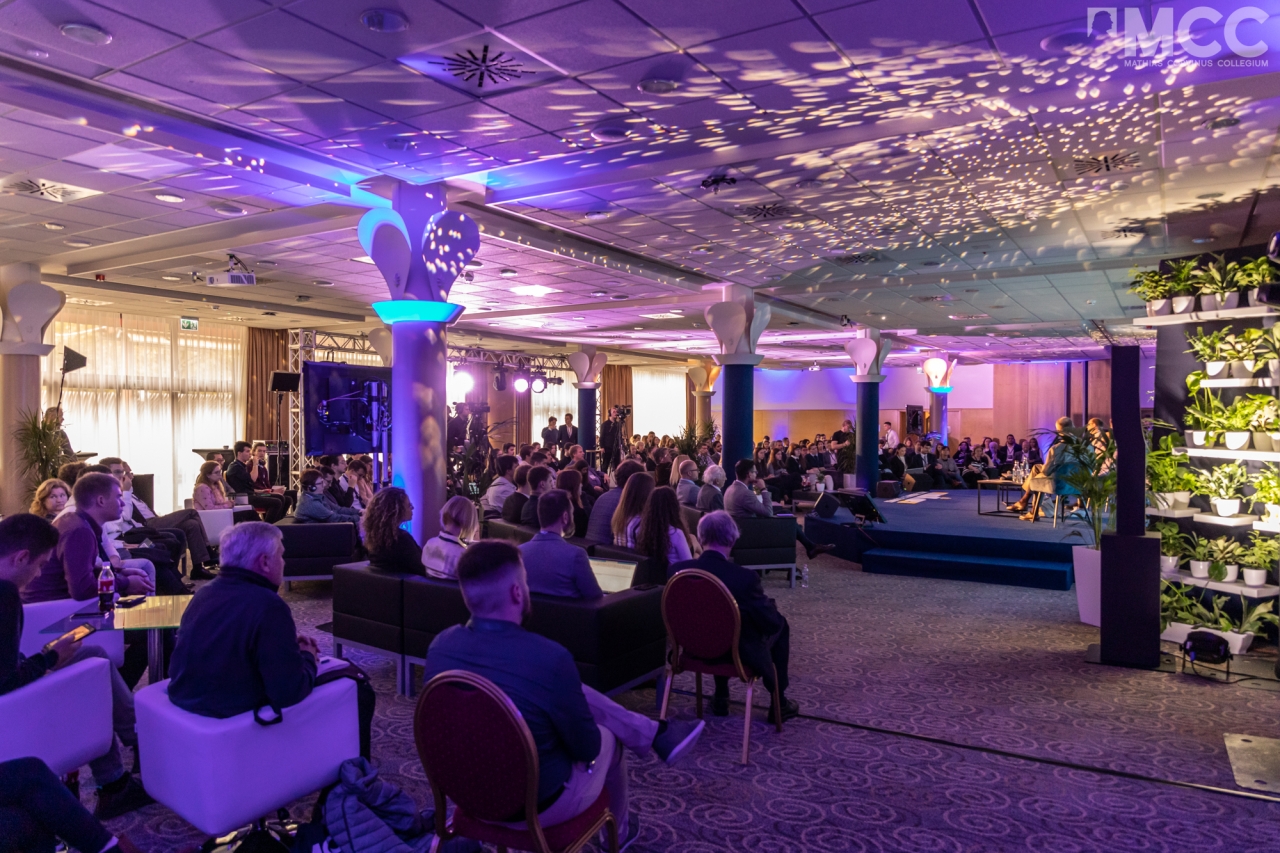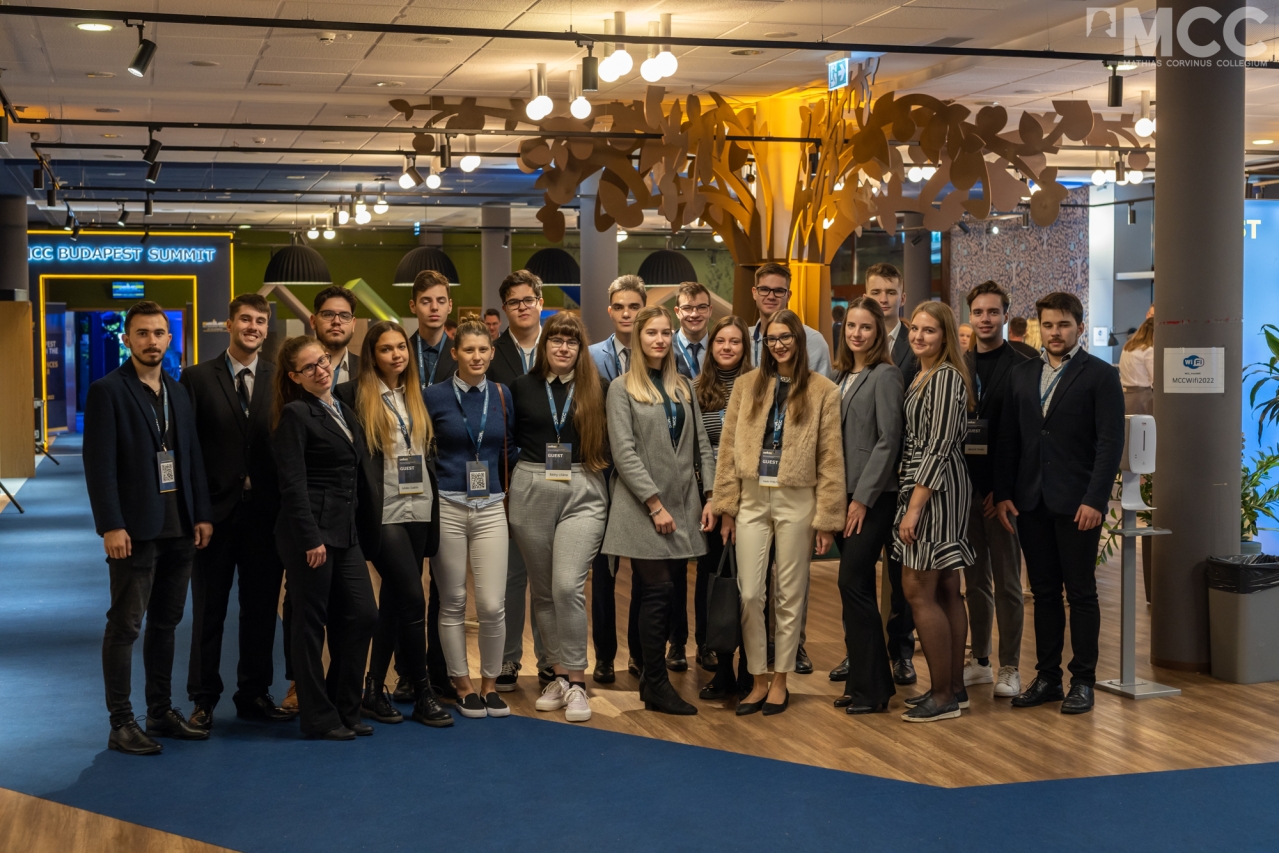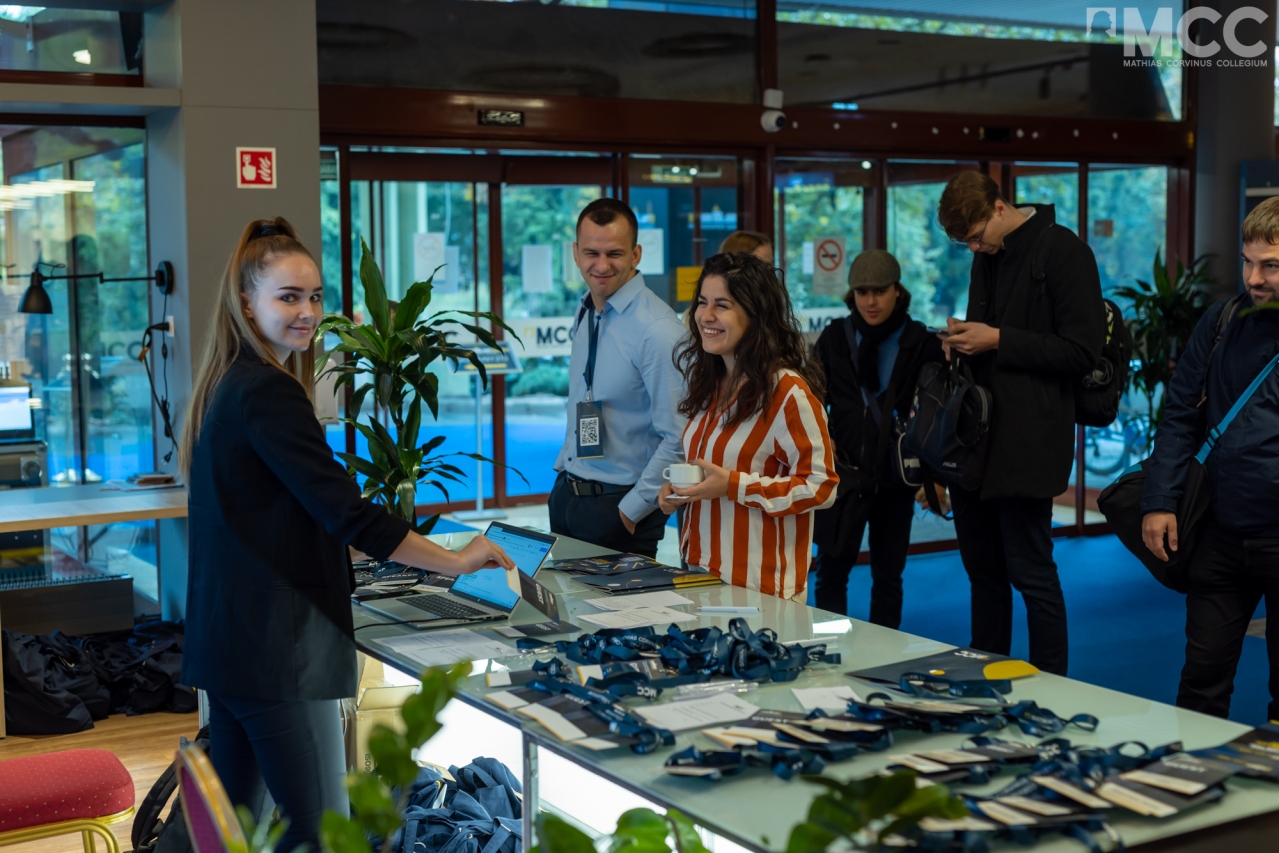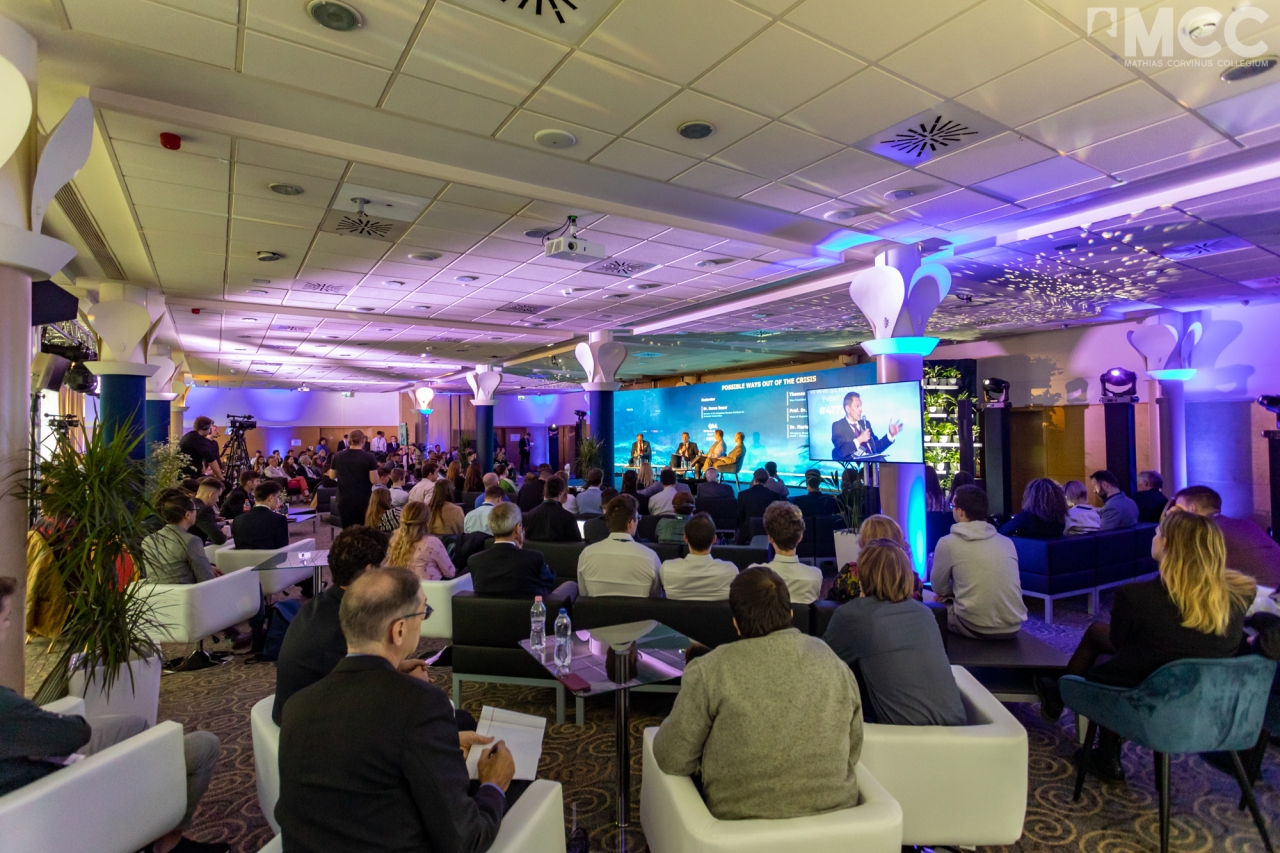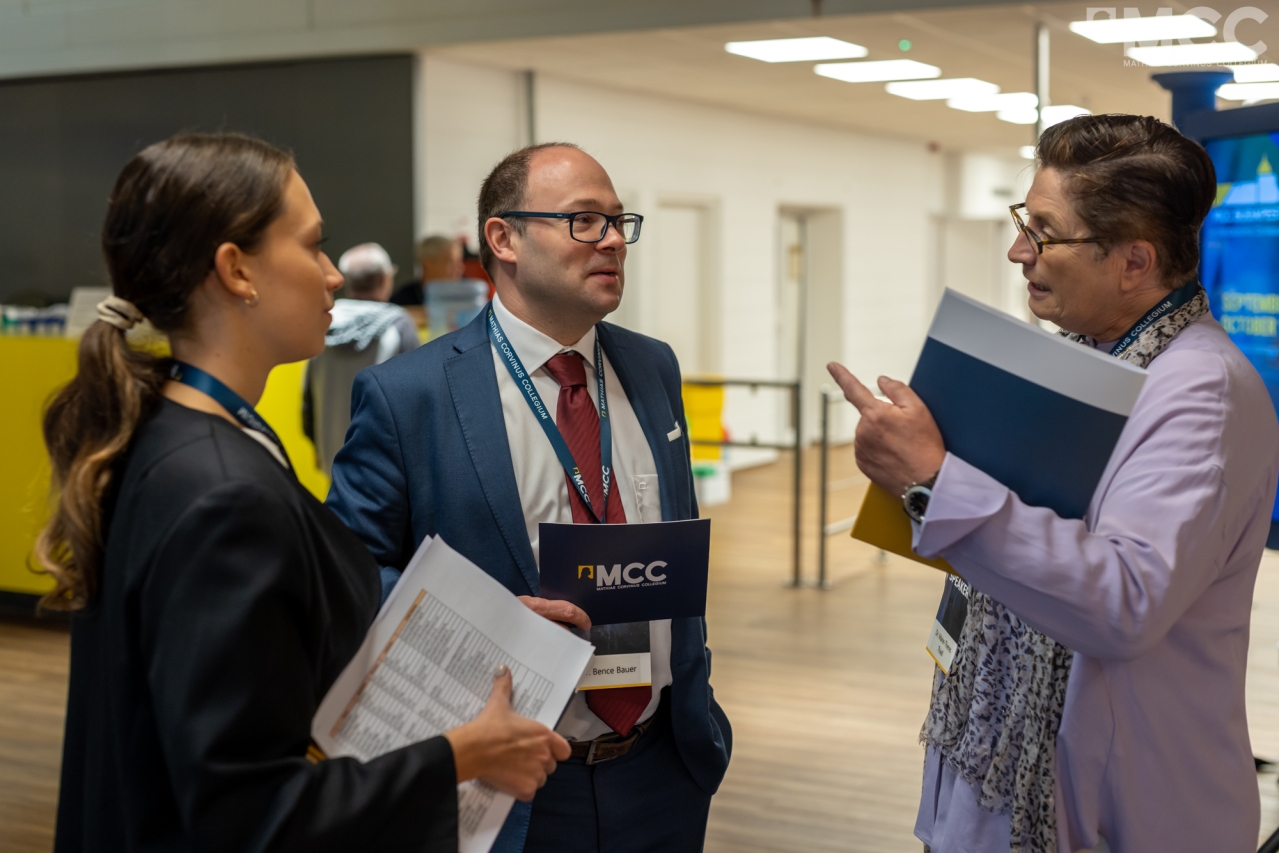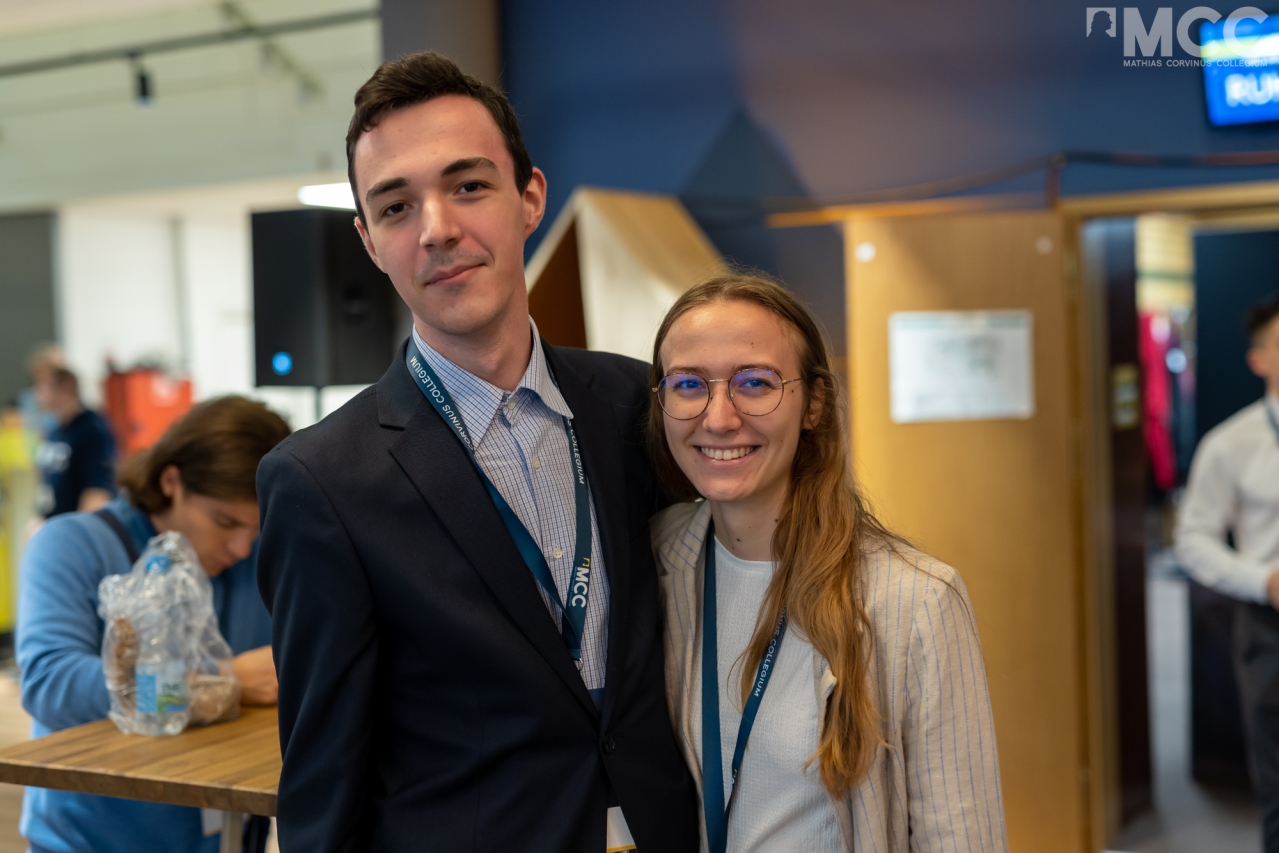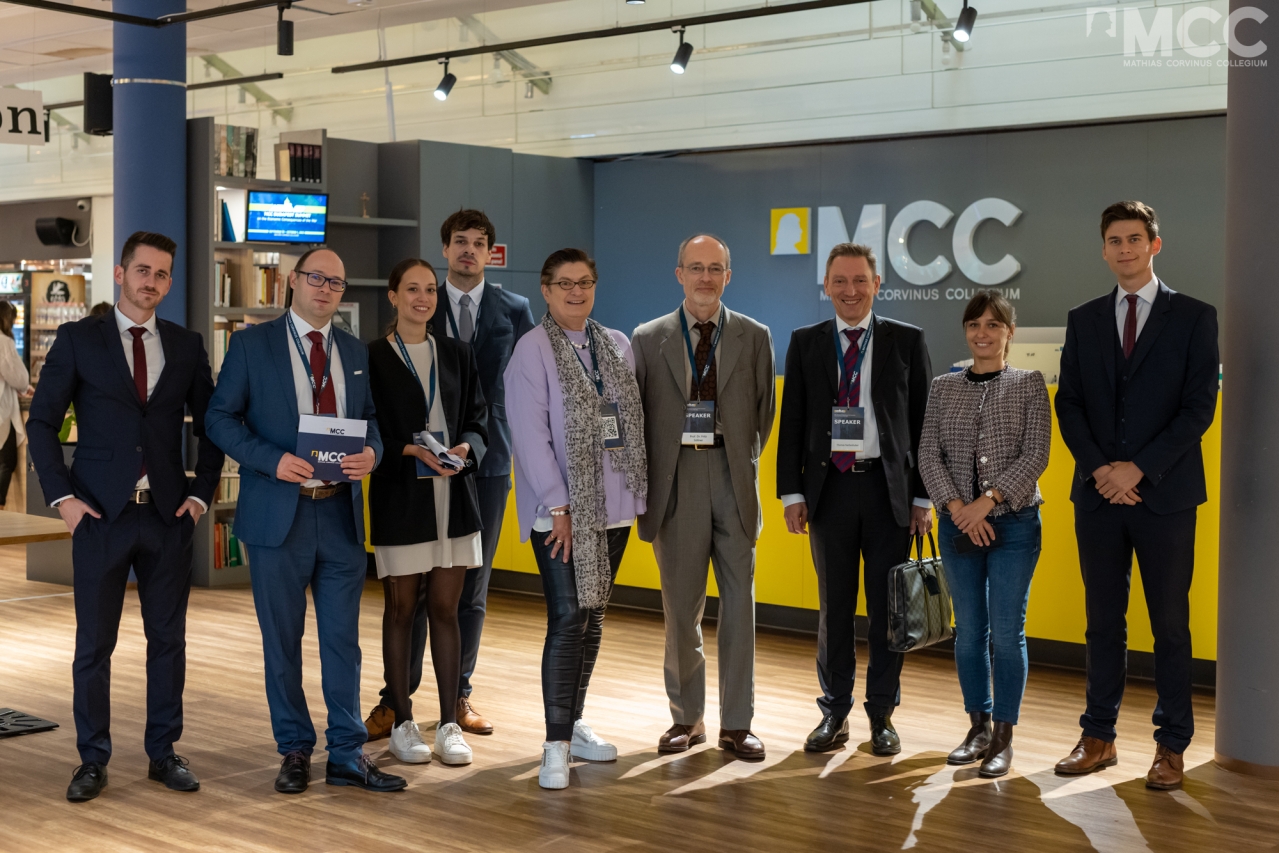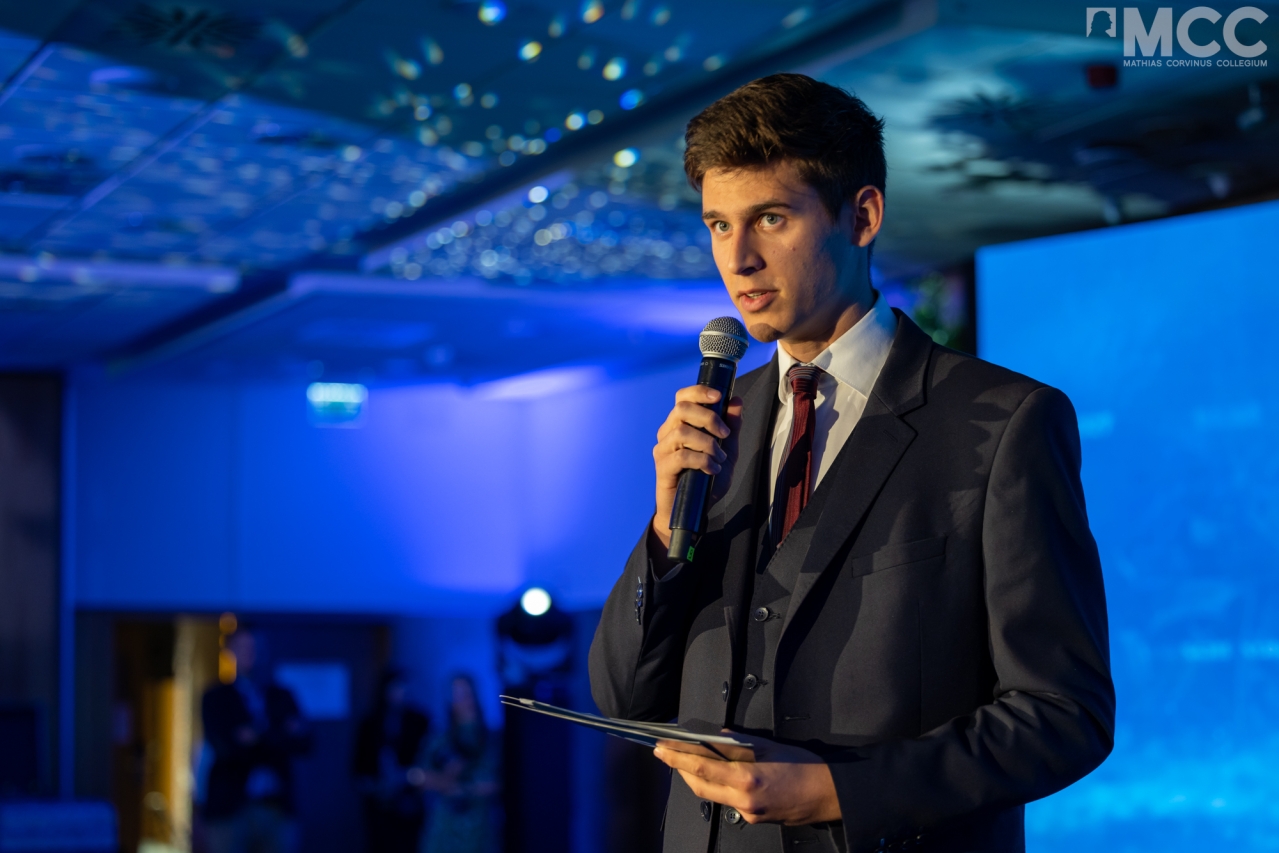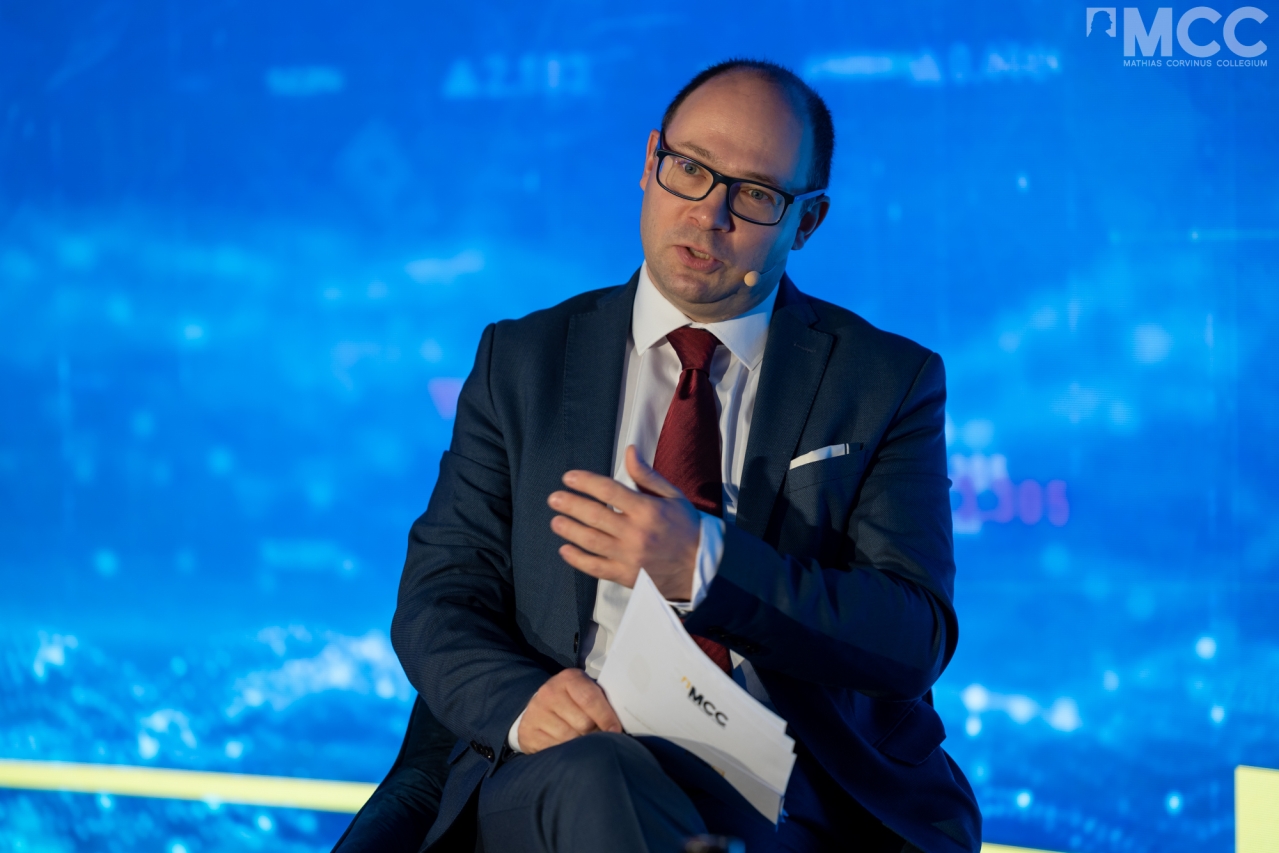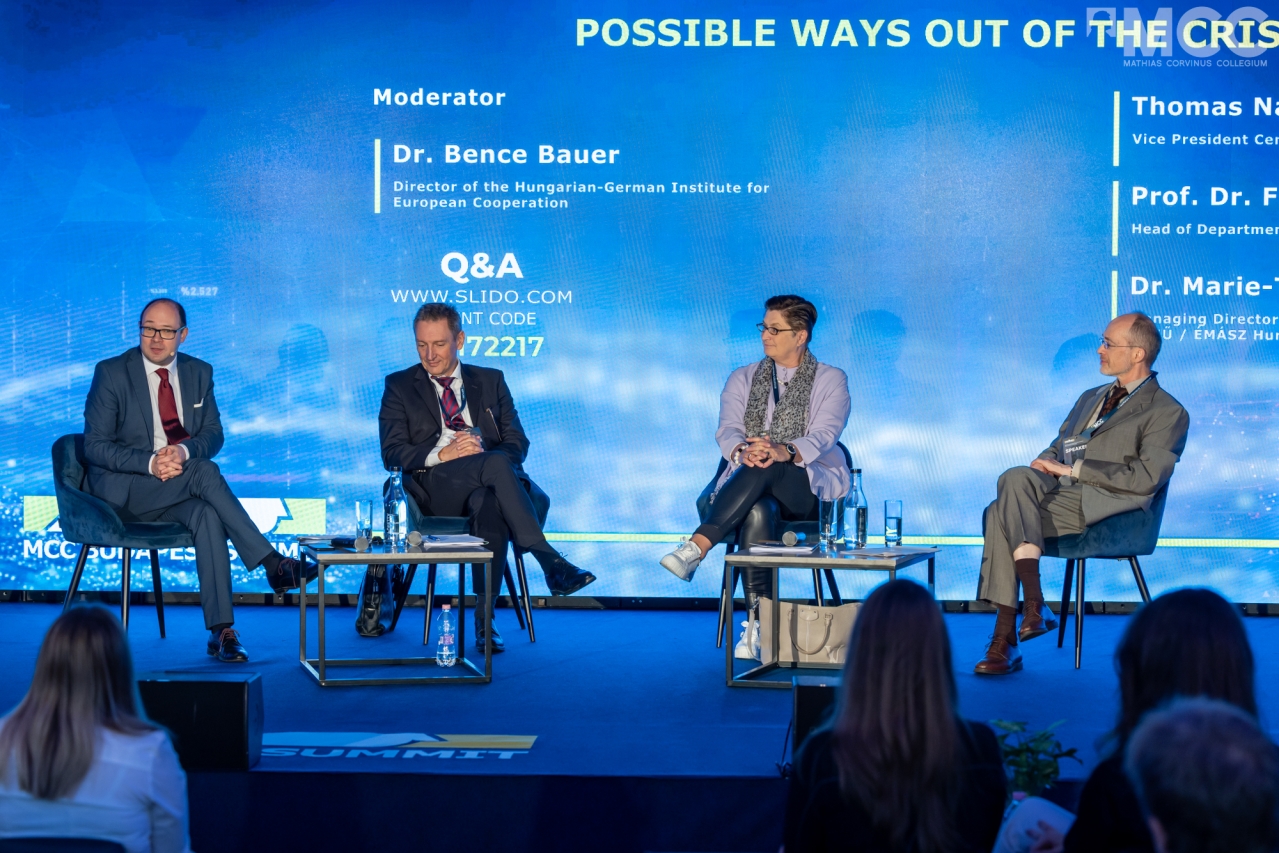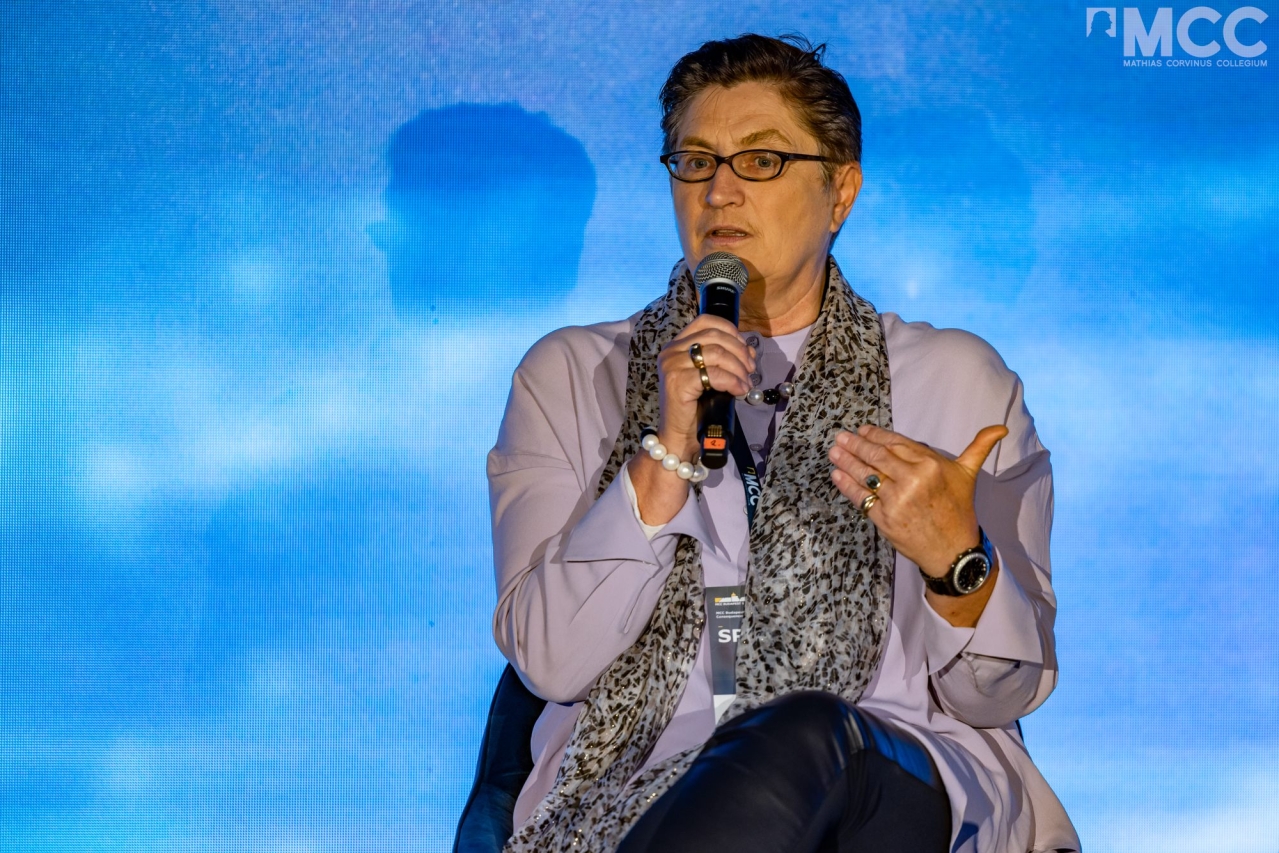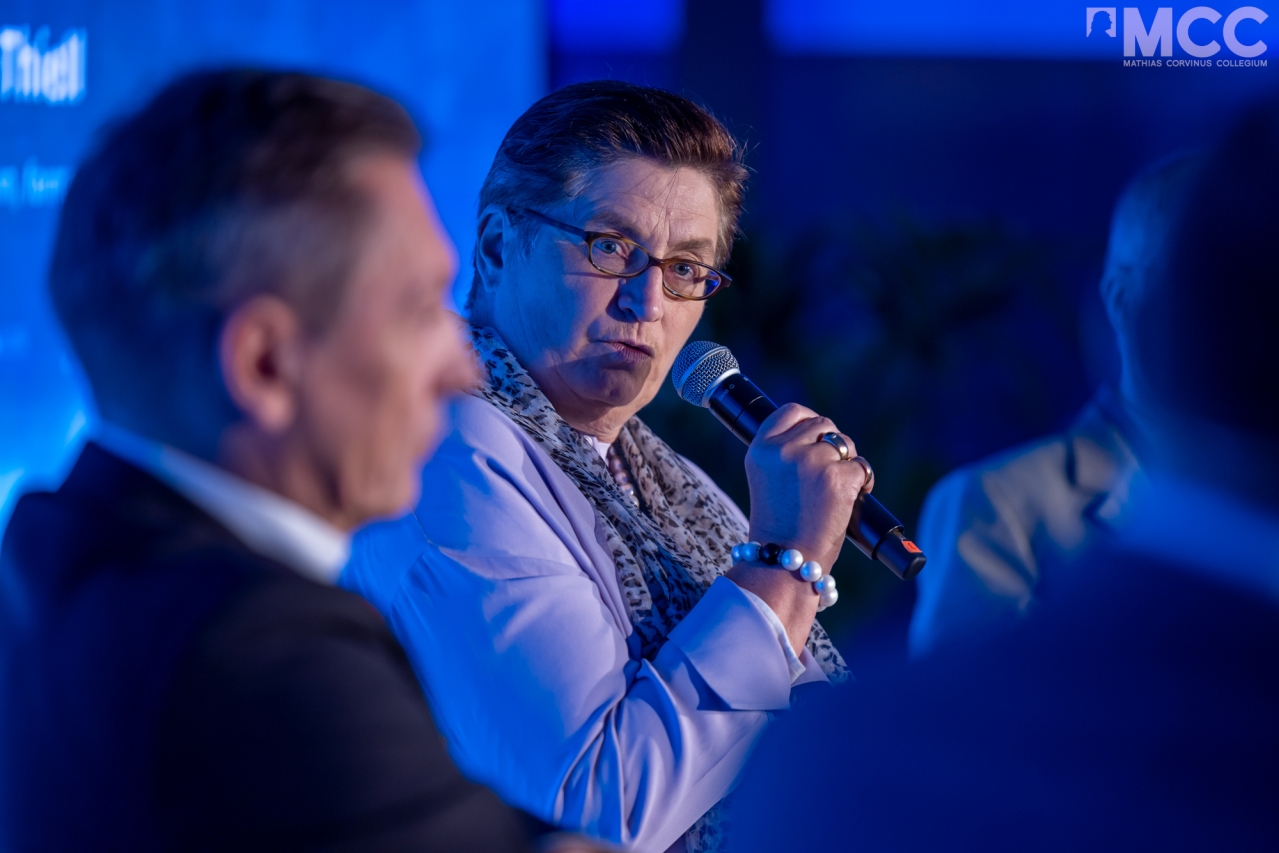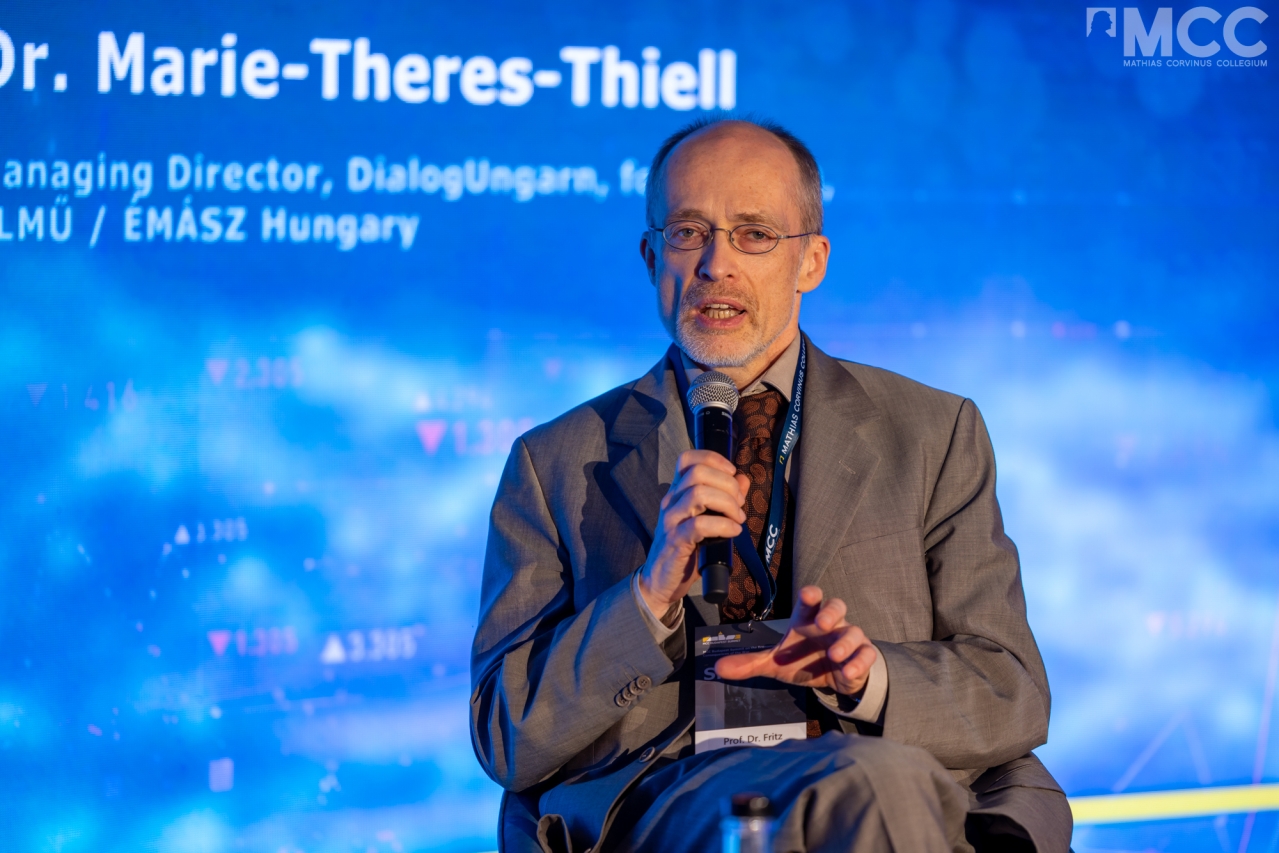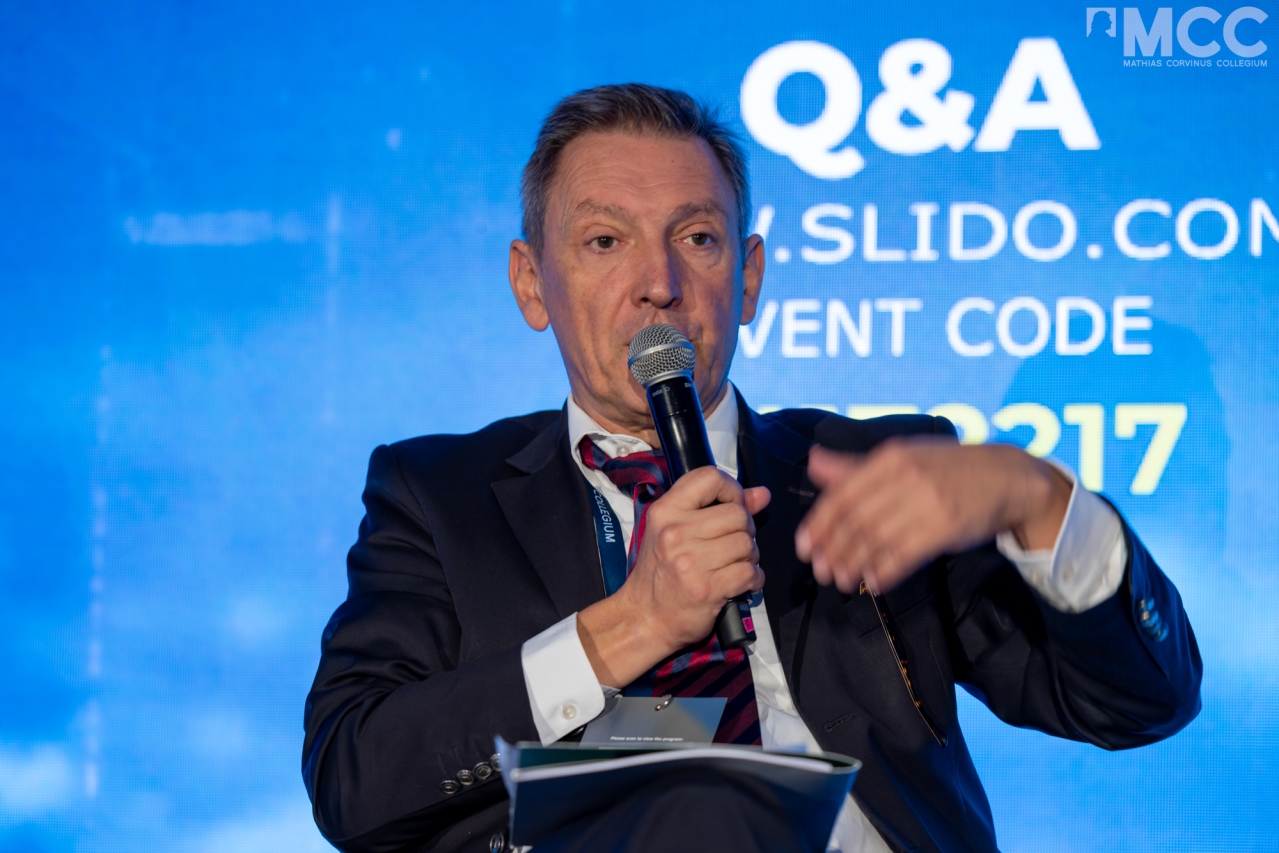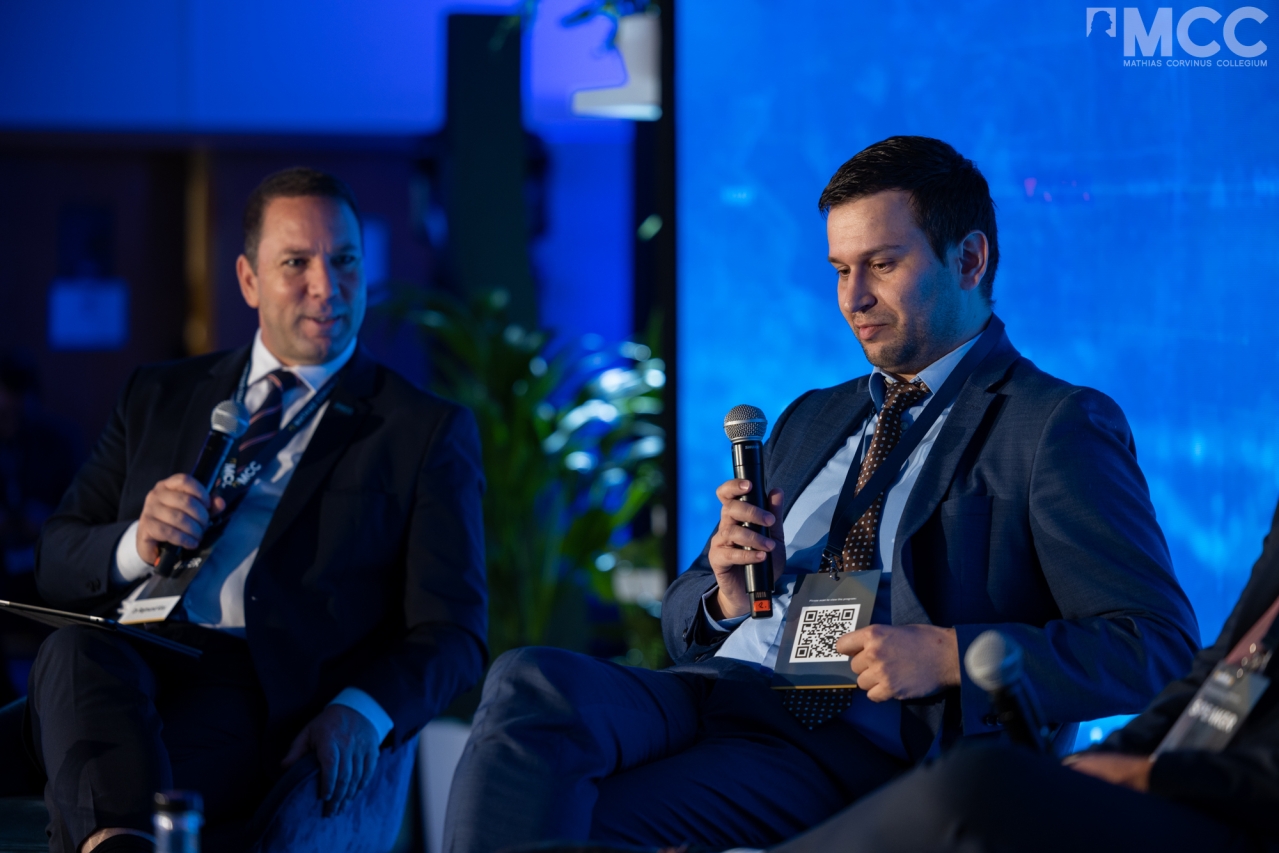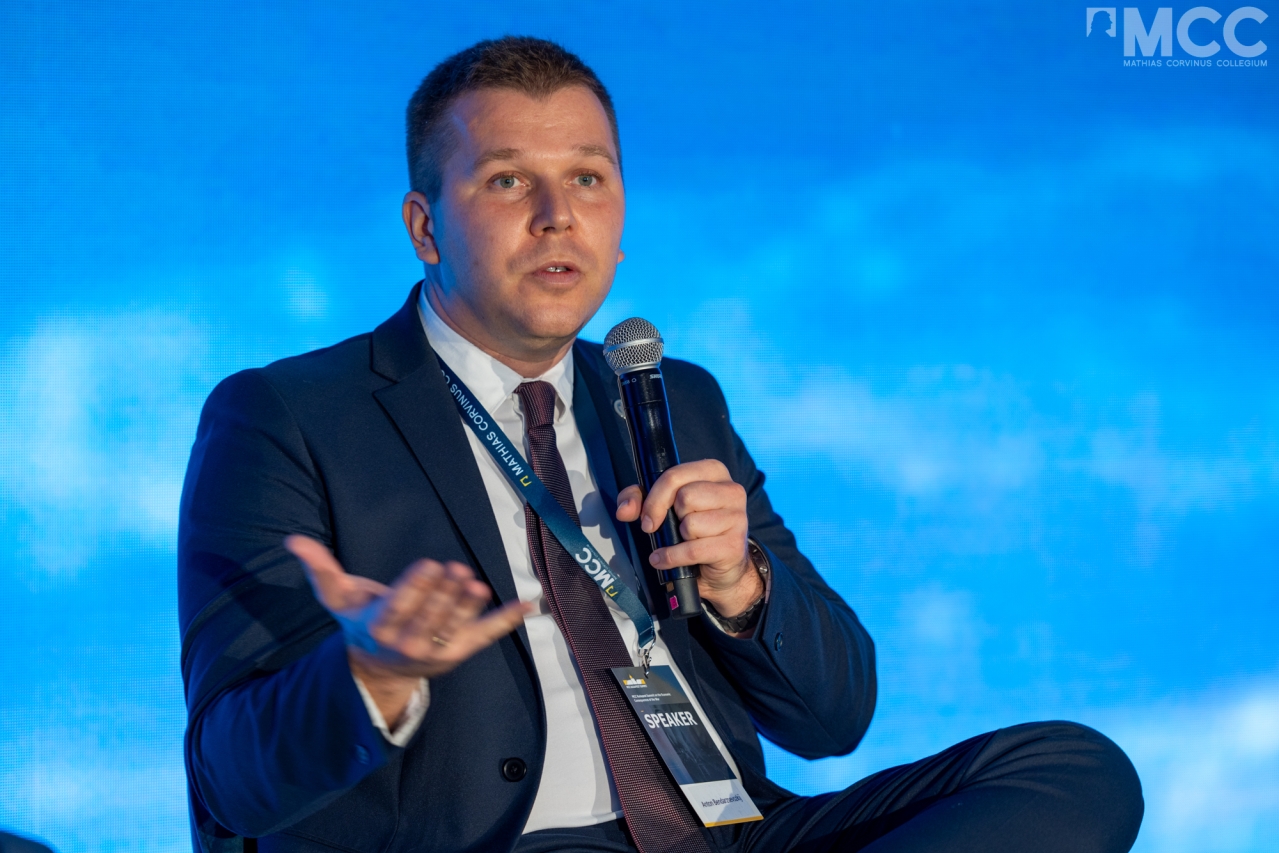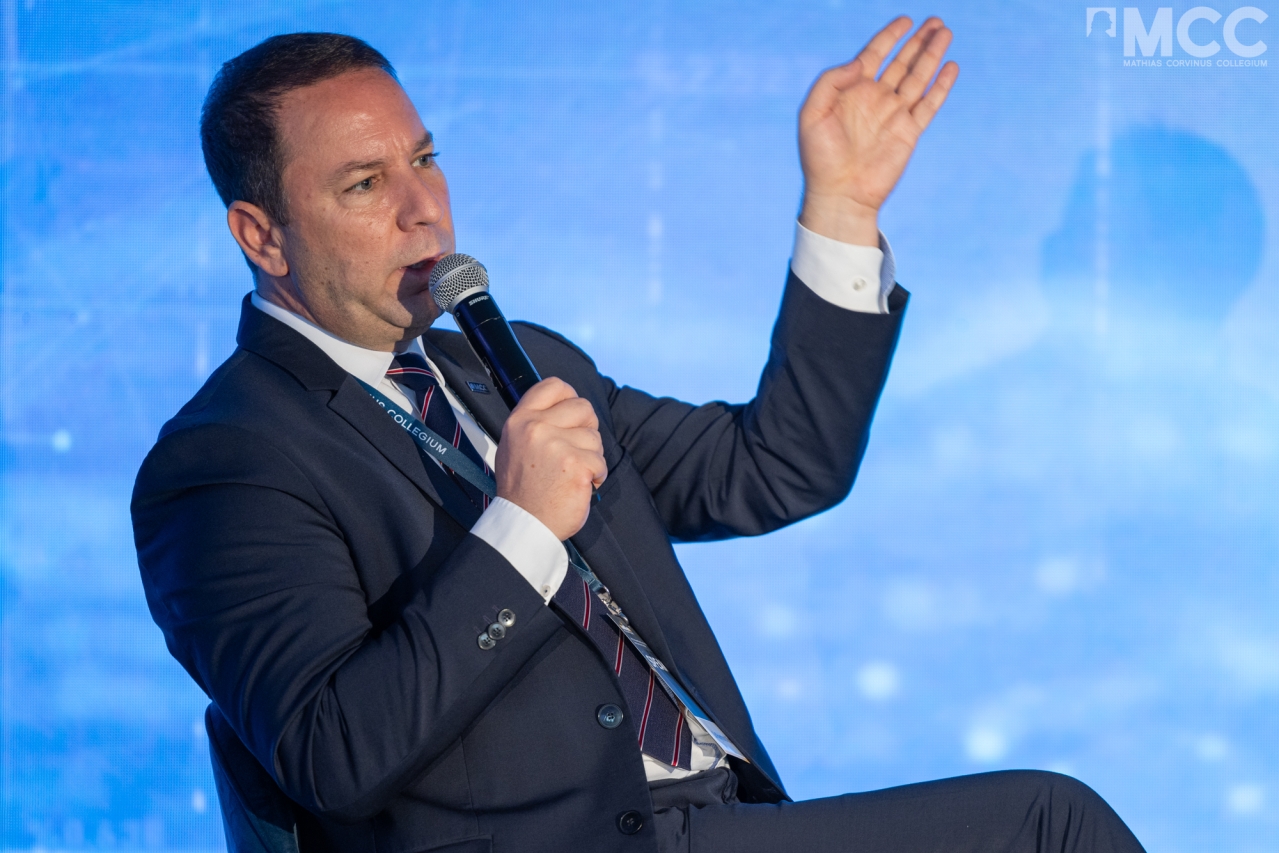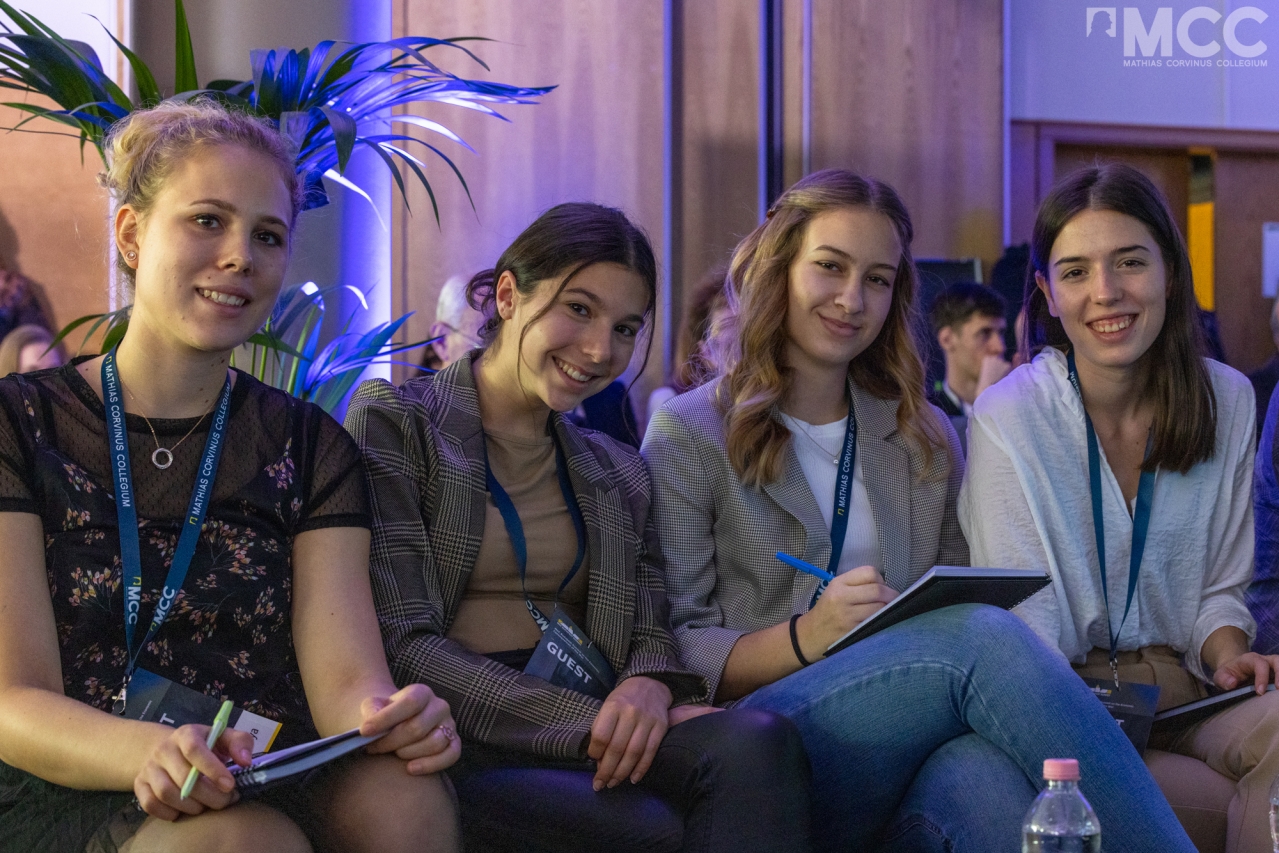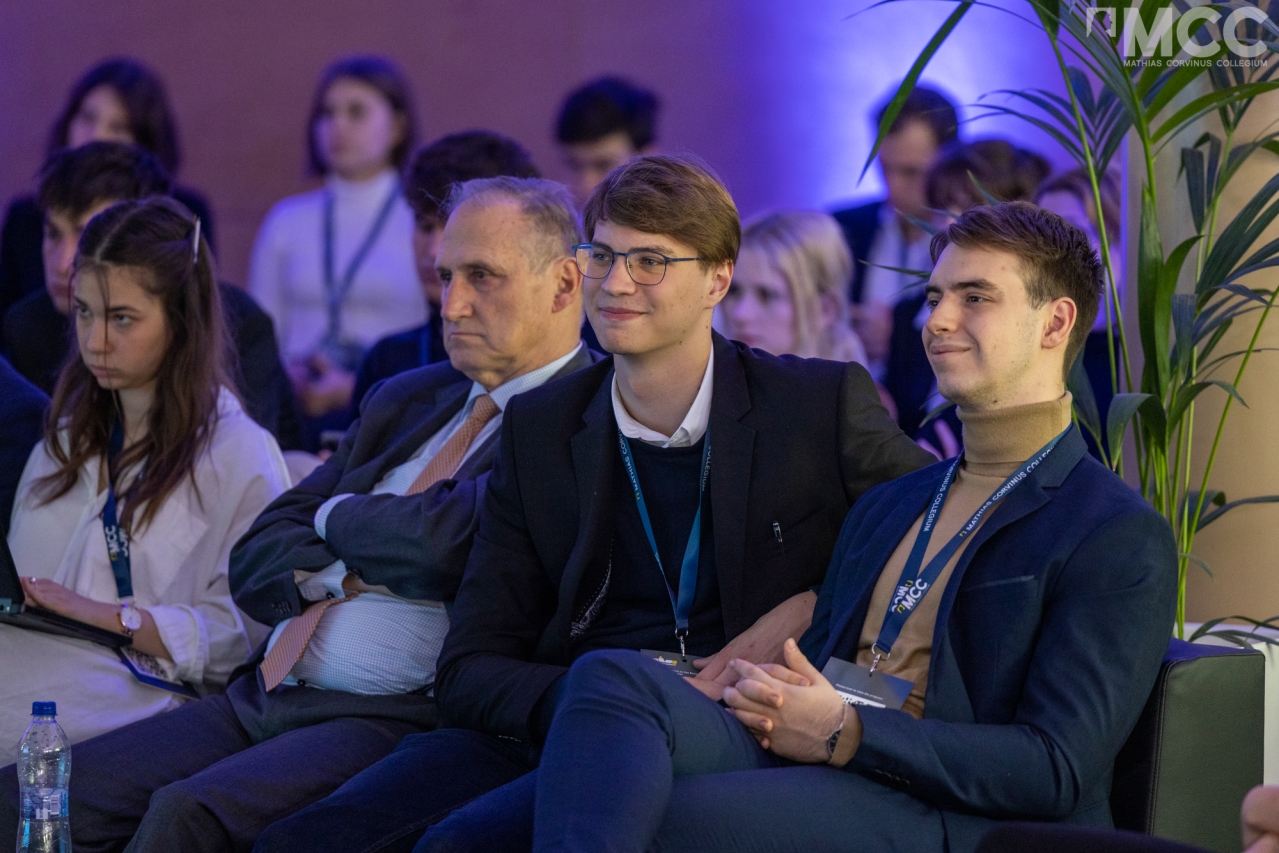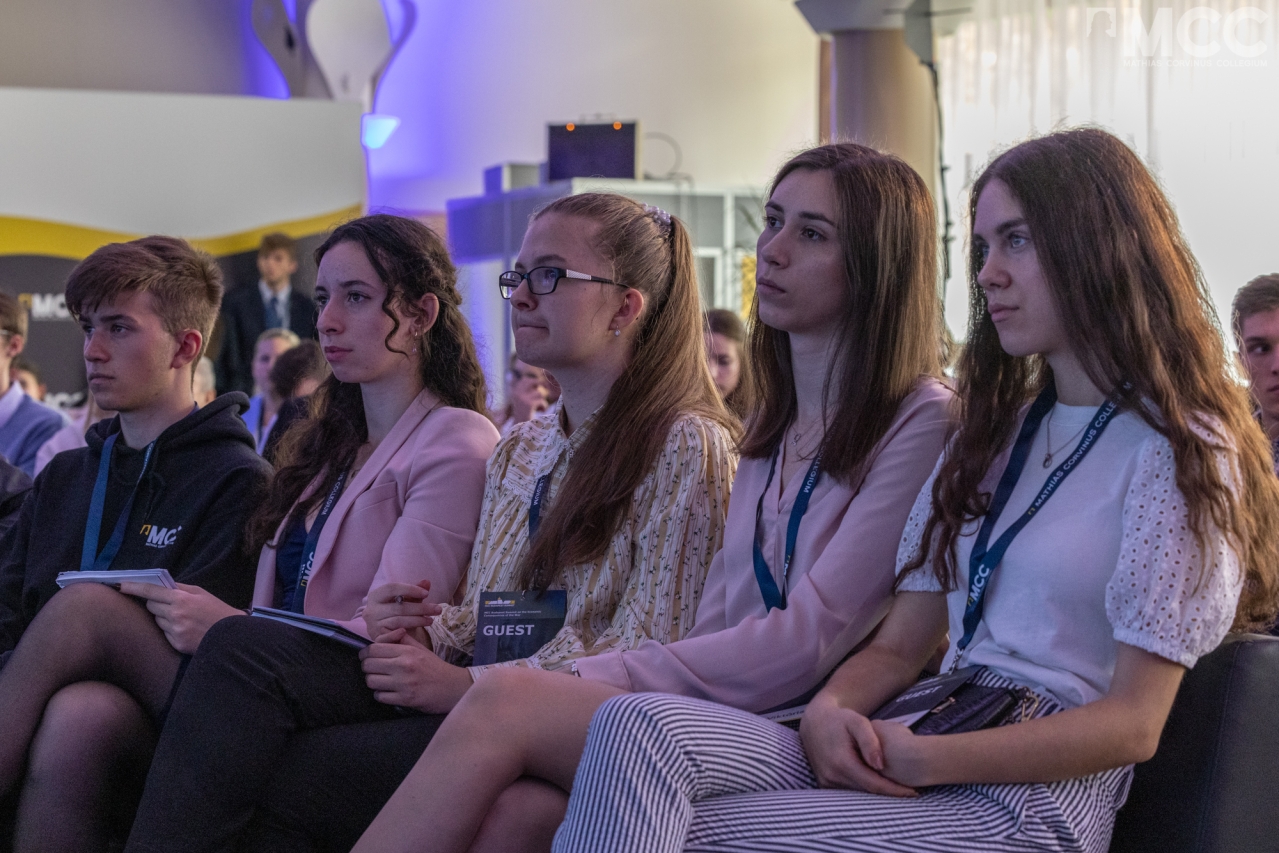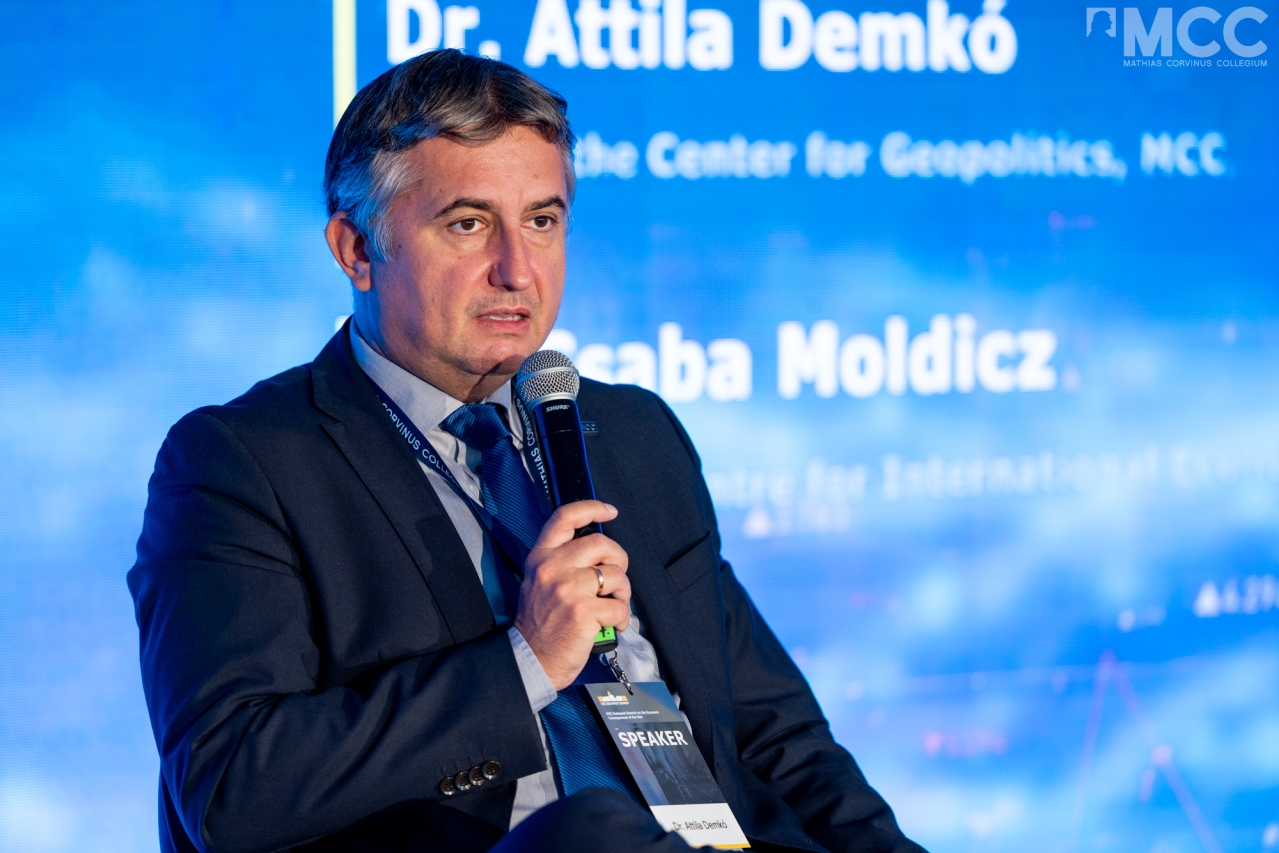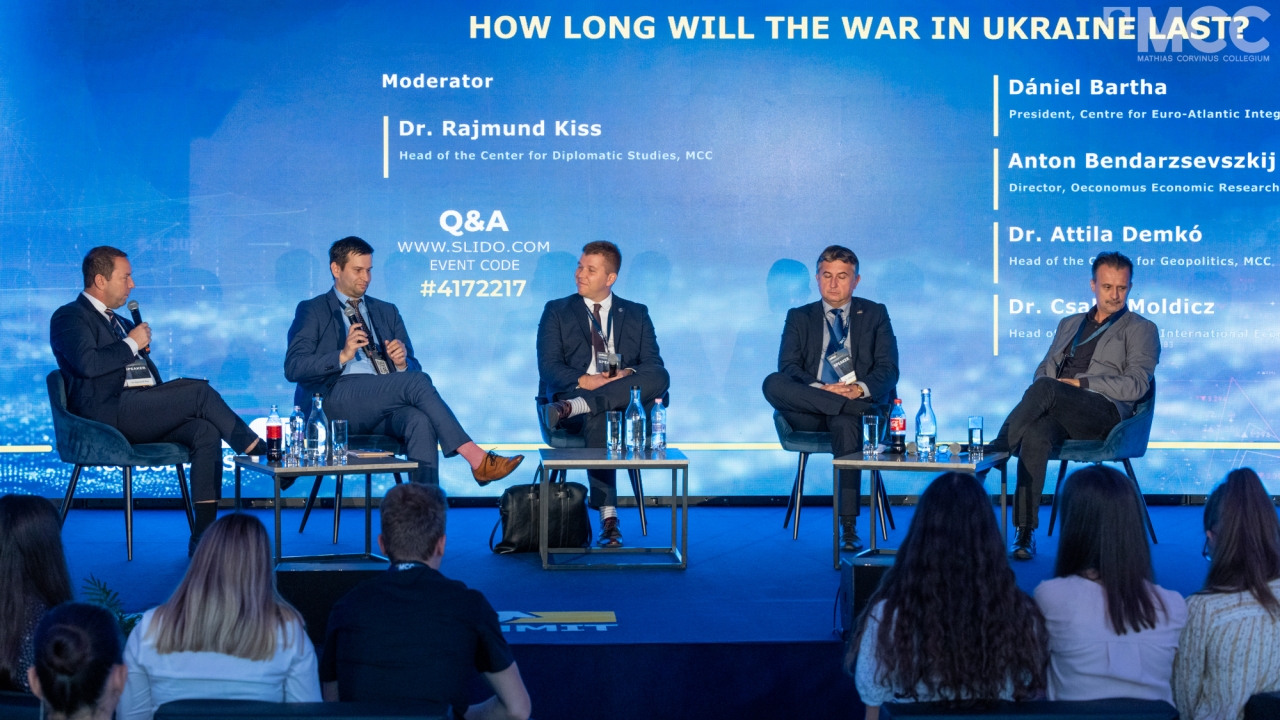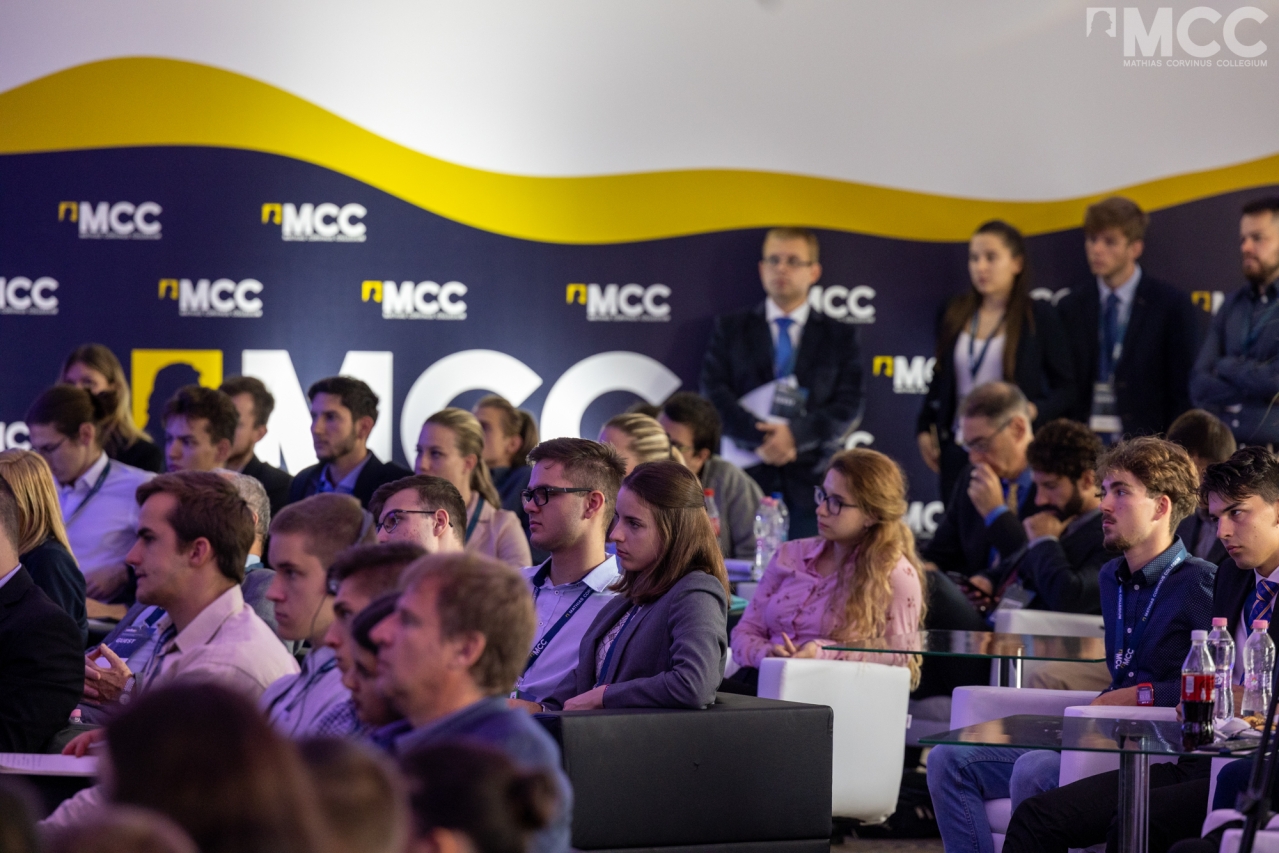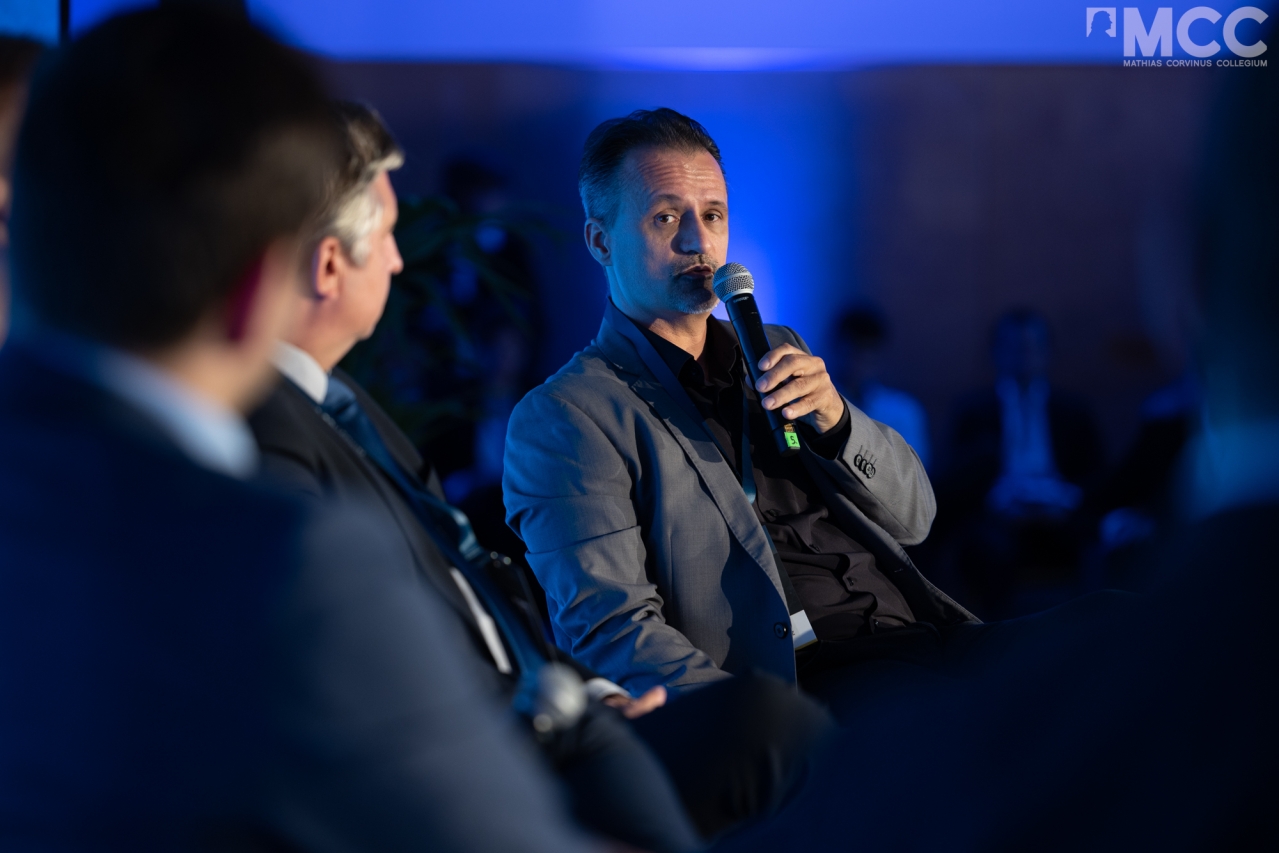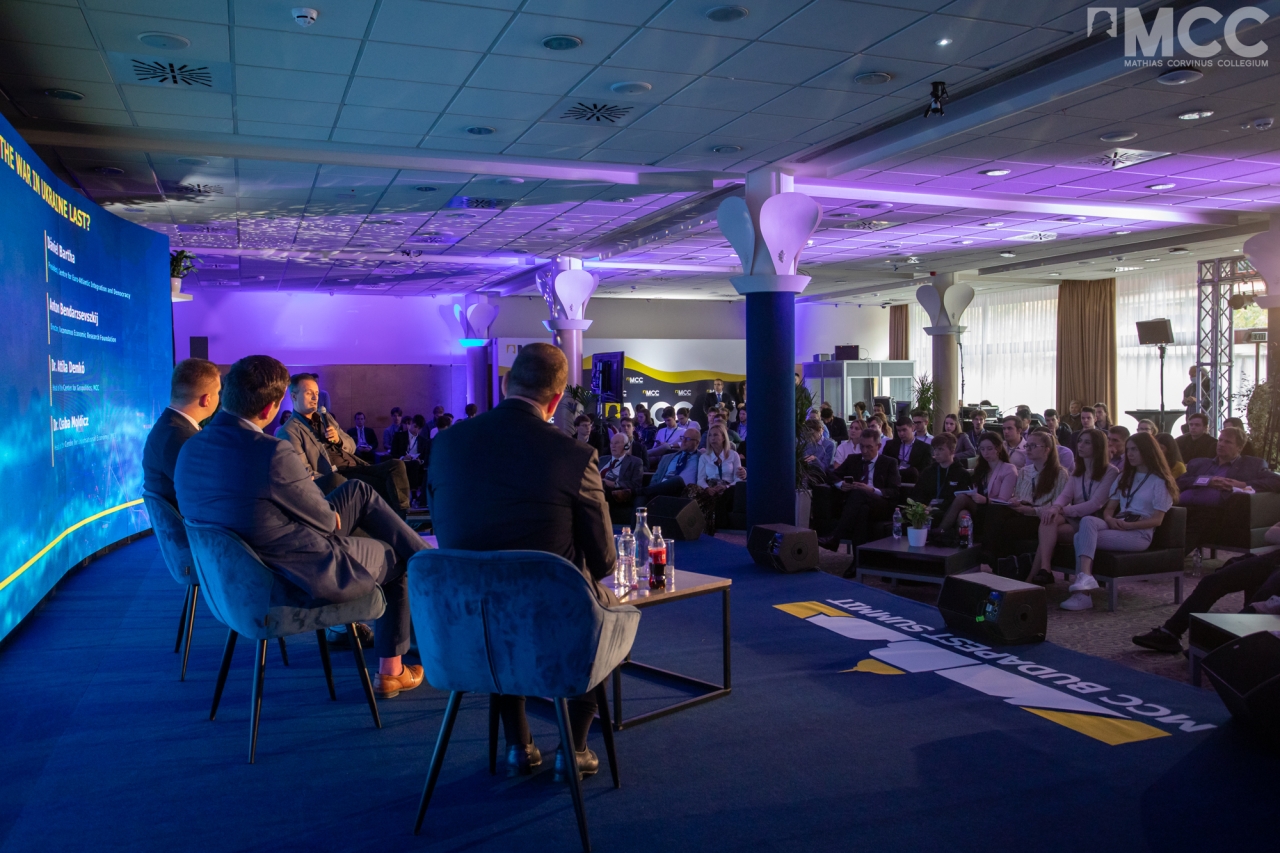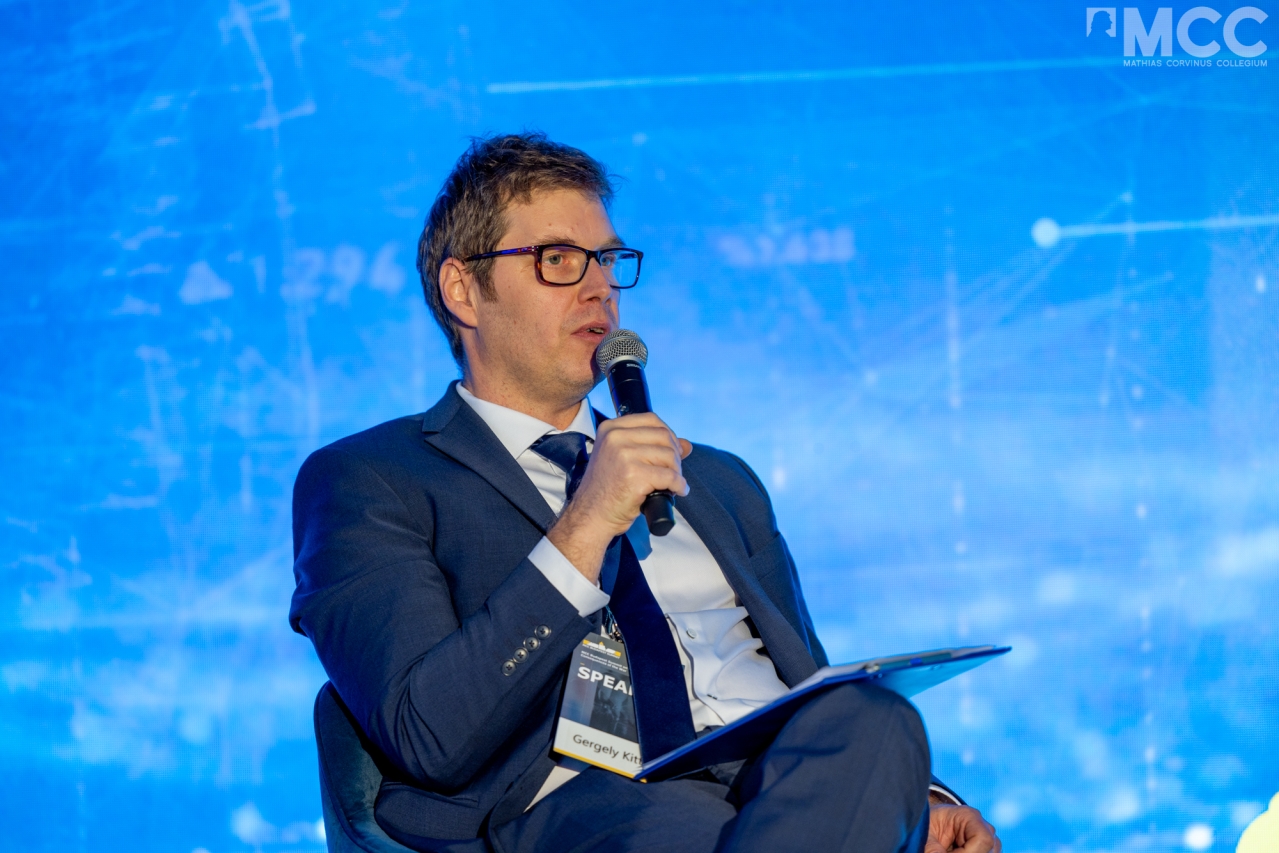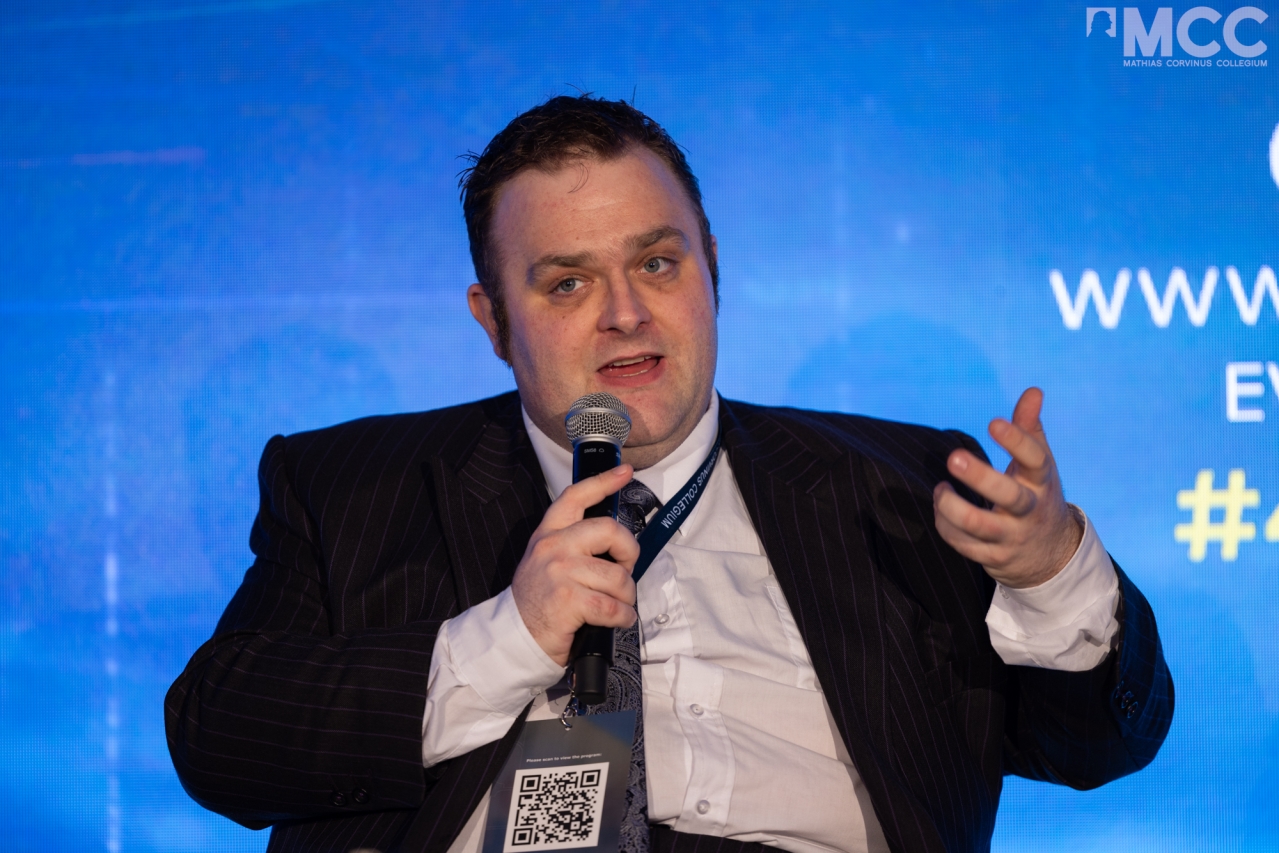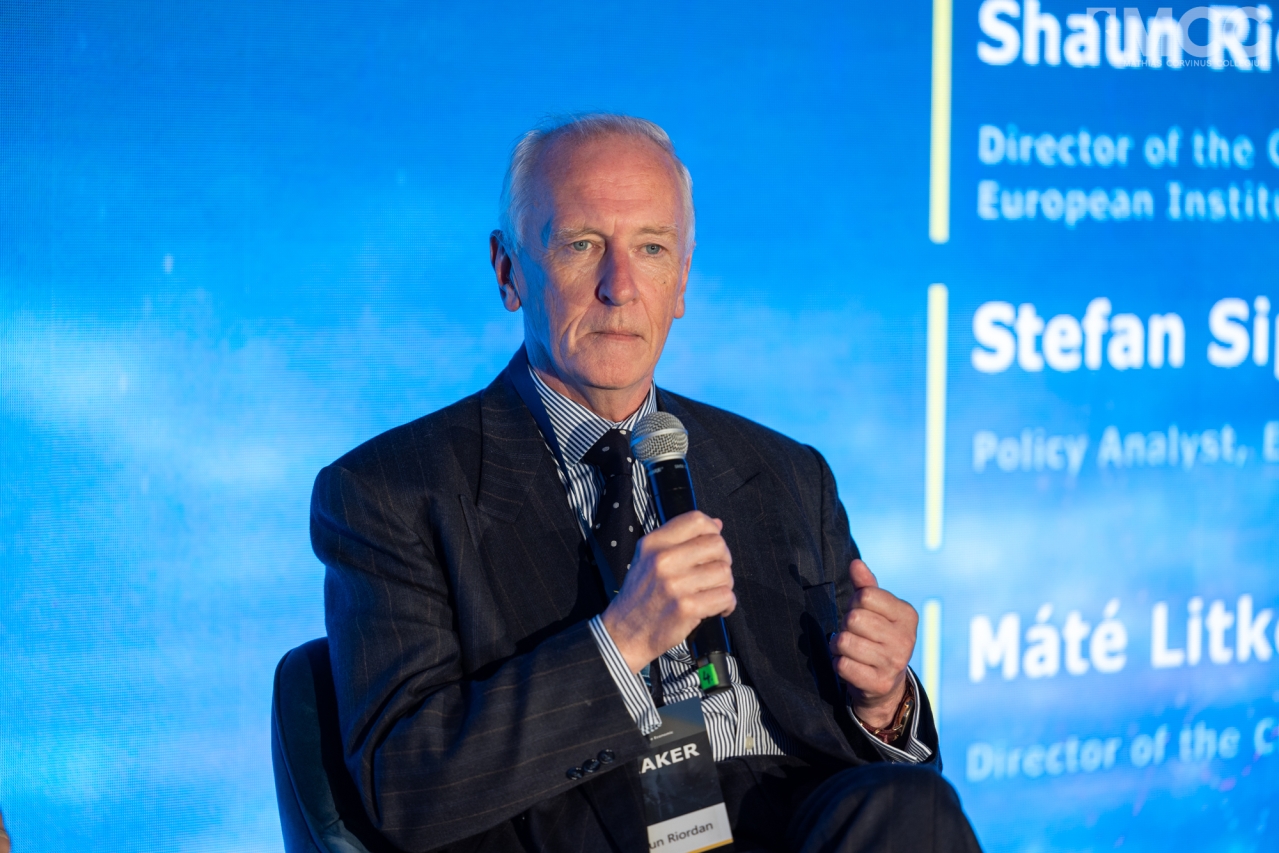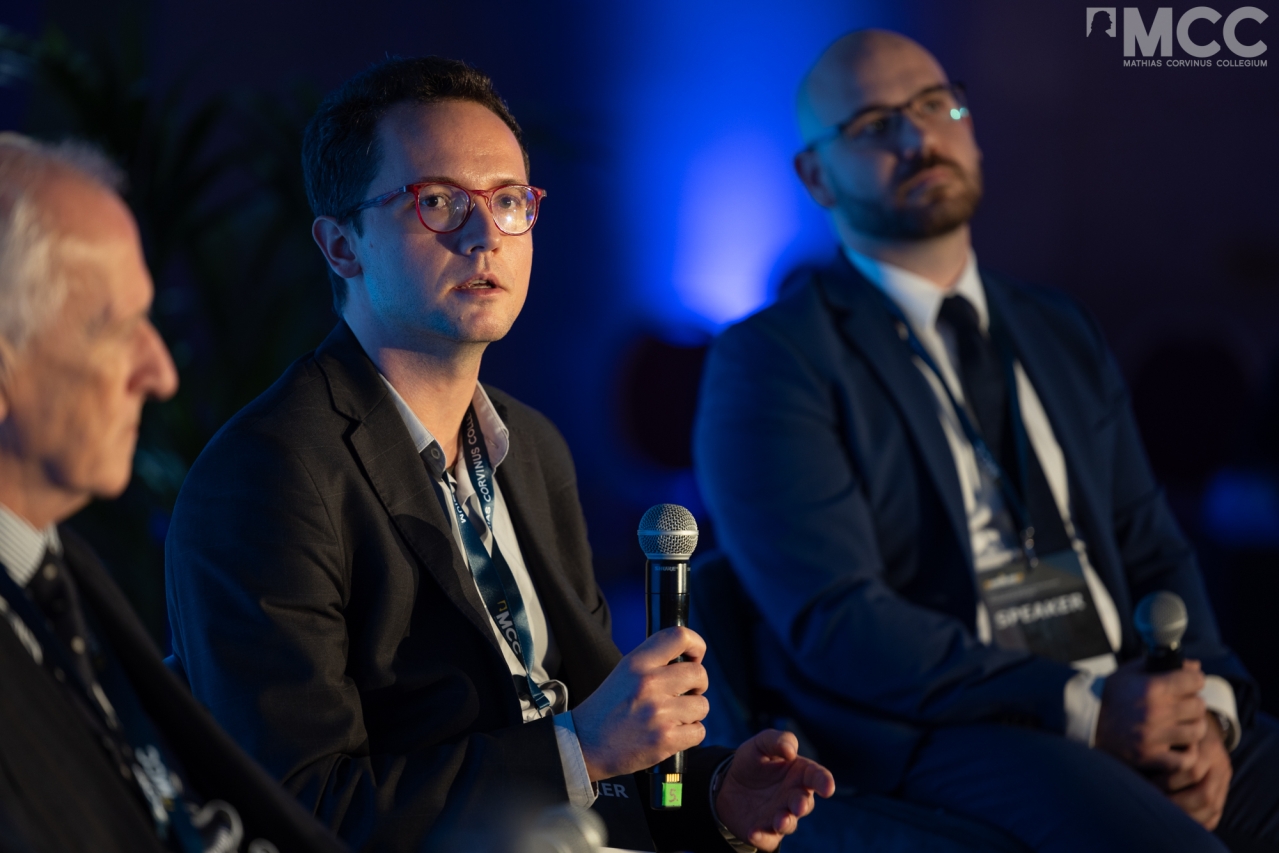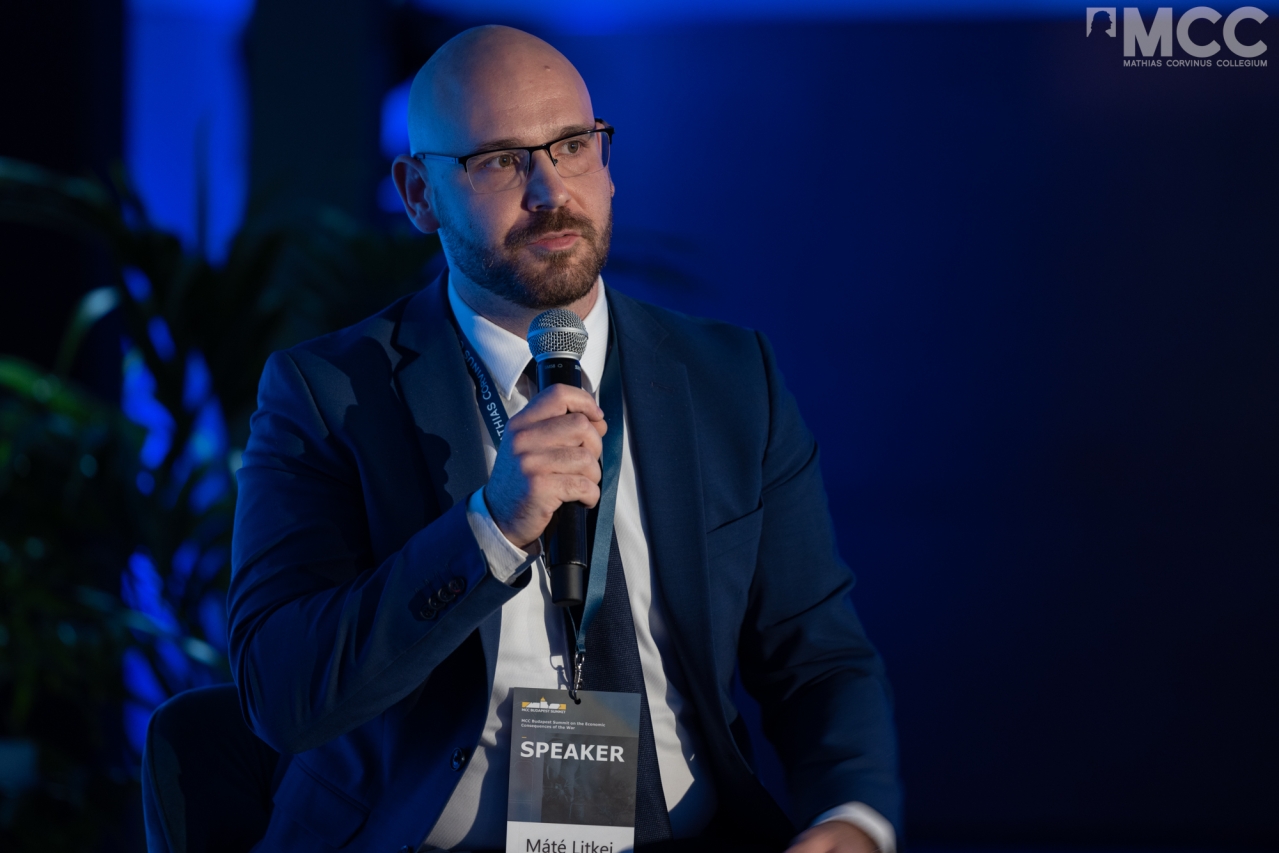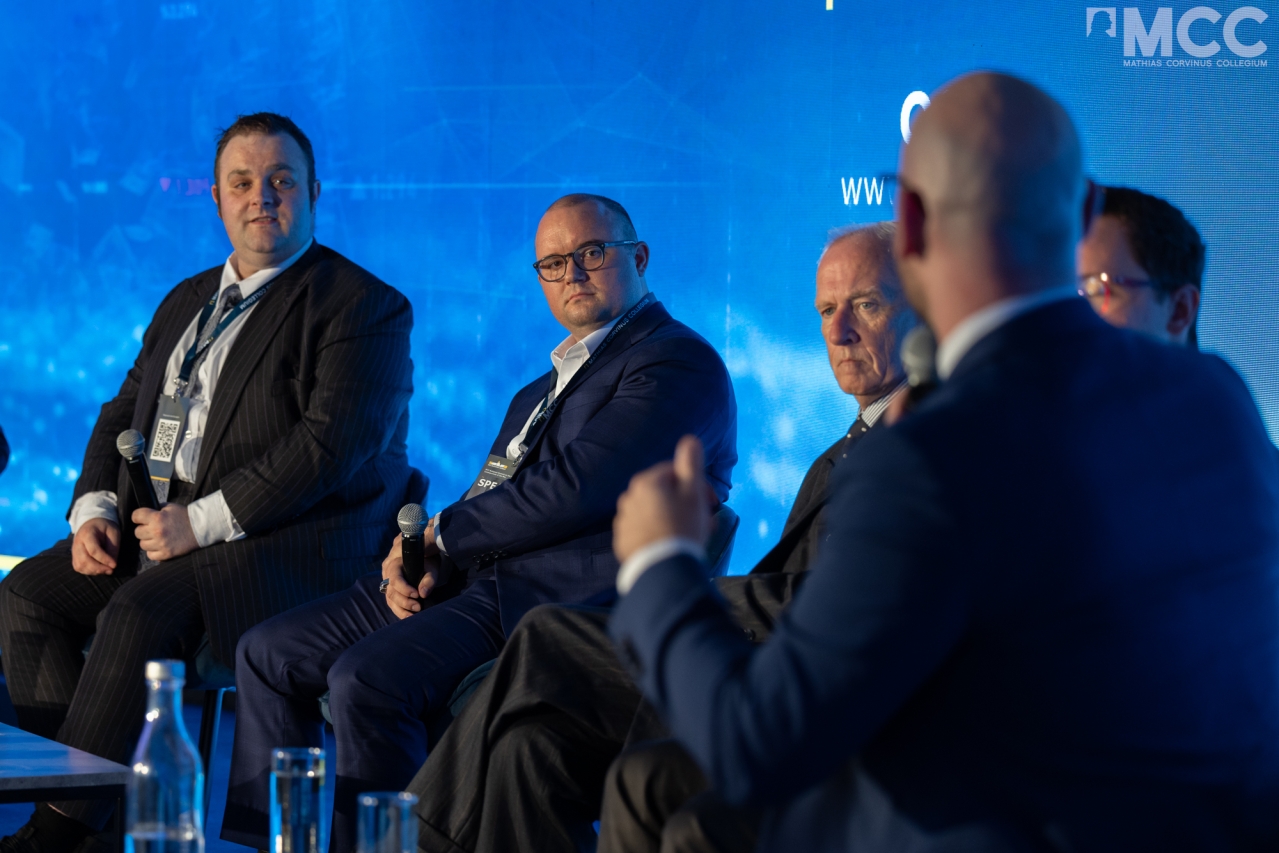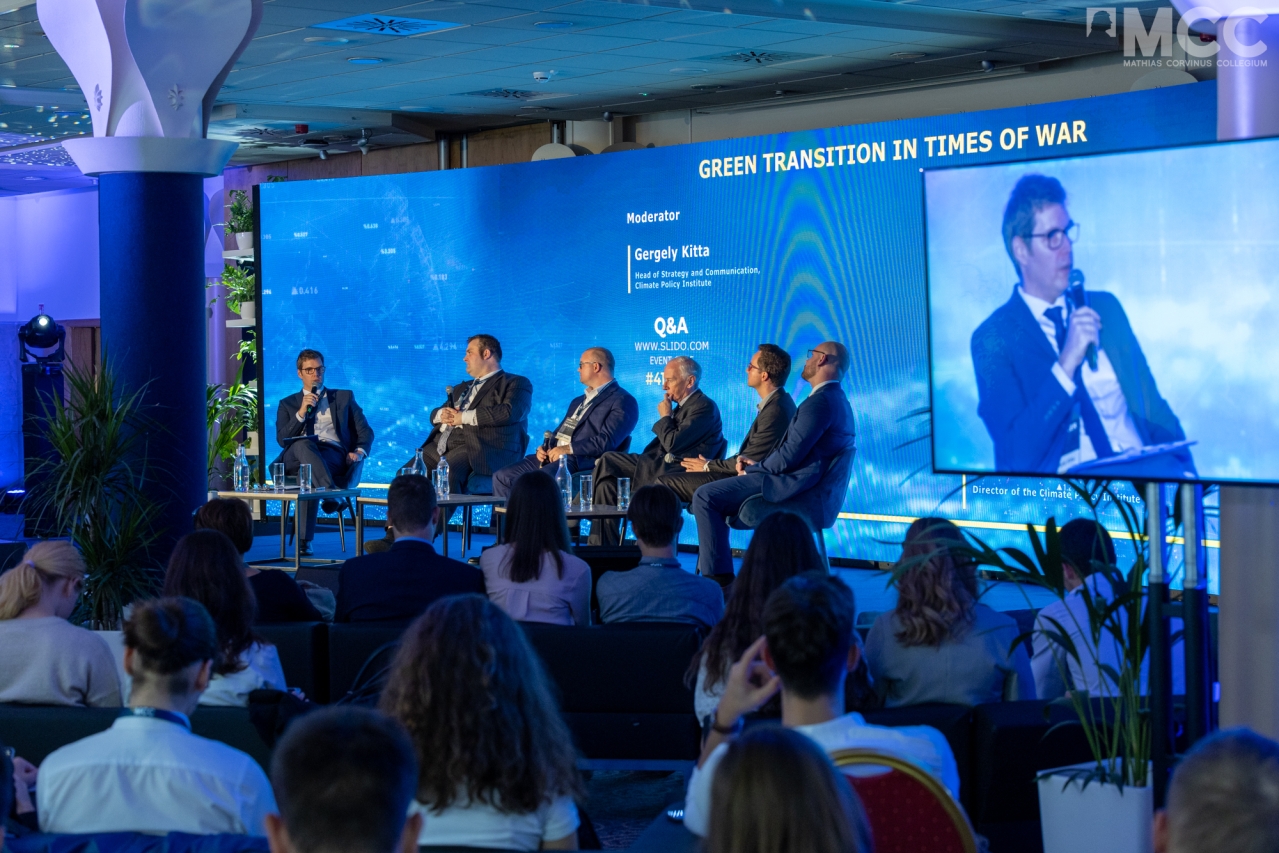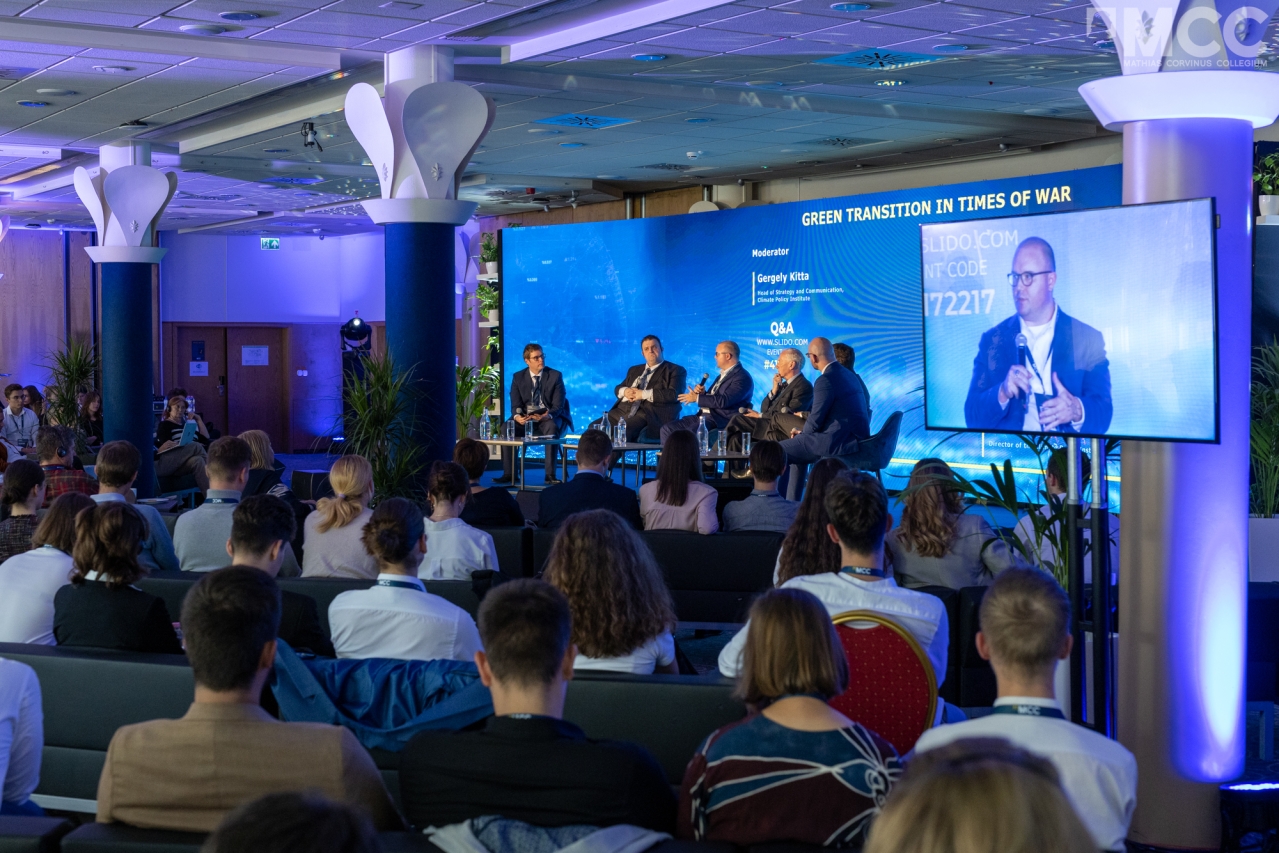Reading time: 7 minutes
Europe and Hungary are facing major challenges and hardships, and radical changes will be needed to tackle the economic problems caused by war and sanctions, according to the two-day conference organized by Mathias Corvinus Collegium (MCC). Twenty international and 15 domestic speakers and experts from 10 countries shared their insights at the 4th MCC Budapest Summit between 30 September and 1 October. They all agreed that, although the crisis seems to be deepening, peace can bring tangible improvements in the economy and financial markets. The conference was attended by nearly 800 participants.
The MCC Budapest Summit has closed on Saturday. On the last day of the conference, hundreds of people continued to hear the views of scientists and experts.
Possible Ways Out of the Crisis
Dr Bence Bauer, Director of the Hungarian-German Institute for European Cooperation, Dr Thomas Narbeshuber, Vice President of BASF Central and South-Eastern Europe, Dr Marie-Theres Thiell, Managing Director of DialogUngarn and former Managing Director of ELMŰ/EMÁSZ Hungary, and Prof. Dr Fritz Söllner, head of department at Ilmenau University of Technology, explored possible ways out of the crisis from an economic perspective, including how to deal with the social consequences of the changes affecting the economy. The panel discussion also aimed at outlining possible solutions for companies to cope with the crisis in the fall-winter season.
Participants in the opening panel of the second day of the MCC Budapest Summit called for united aaction and European-level cooperation, which they say is the key to Europe's ability to effectively tackle the coming crisis. In this respect, for example, Germany's Länder system is not very beneficial in a crisis, as this type of structure slows down decision-making mechanisms, Marie-Theres Thiell pointed out. Although the crisis has not yet deepened, people in Germany are already experiencing fear, she added, which was barely over after COVID. However, she stressed that in every crisis there are opportunities, and that we must trust that the recession will be followed by a recovery.
Thomas Narbeshuber is also optimistic about the future: "This is the 7th crisis I've been through in the last 30 years and we've come out of all of them. It will require cooperation, creative ideas, and a united front in Europe. Europe can only remain strong if we stand united," he stressed. He also spoke of the importance of keeping raw material production in Europe, which is key to keeping European industry alive. If raw material production moves elsewhere, it is logical that production will move there too, and European industry could virtually disappear," he added.
According to Fritz Söllner, the direction in which the crisis proceeds should be examined in more depth. The political direction that made the German economy dependent on Russian energy had played a major role in the current situation, he said. The price of war and sanctions is being paid by German companies and the German people.
All participants agreed that increasing the use of renewable energy and the cooperation between countries are key to tackling the crisis, but it is crucial to find a solution that is sustainable and works in the long term. However, an economy and a country as large as Germany cannot do without conventional power plants, Wind and solar power cannot reliably provide energy without gas, coal and nuclear power. In addition, Marie-Theres Thiell stressed the importance of proper grid development and investment, as Europe needs to be treated as one grid for electricity.
How Long Will the War in Ukraine Last?
We can say goodbye to continuous growth, development and prosperity," said the Director at the Oeconomus Economic Research Foundation Anton Bendarzsevszkij at the conference. In the second panel on Saturday, experts sought to answer the question of how long the war in Ukraine will last.
Bendarzsevszkij added that although the sanctions against Russia are weakening the Russian economy, it is clear that they have not brought it down — so these measures cannot be considered successful or effective. The expert believes that the decade of the 2020s, which was hit by Covid, now a war and the current inflation, will be painful for many of us. Unfortunately, the end of the war will not bring an end to the hard times in one fell swoop, it will be a long and difficult recovery.
Dr Attila Demkó, Head of the MCC Center for Geopolitics, also expects a severe economic downturn. High food prices, covid, and war will cause major problems widely, while Russia is proving resilient to sanctions: although there is some slowdown as a result, many countries have had much bigger problems, such as the ones caused by the pandemic. So, energy sanctions are hurting Europe more than Russia — it is worth looking at what kind of sanctions are working, and which ones are not, and making more considered and thoughtful decisions in the future.
Dr Csaba Moldicz, Head of the MCC Center for Foreign Economics, agreed with the view that sanctions are not working, and the Russian economy has not collapsed. Russia is open not only to the West but also to the East and is more dependent on China than on the European Union. He believes that the war in Ukraine will have significant negative effects on the Hungarian economy in the long term, but it is almost impossible to predict the exact outcome for us.
Dániel Bartha, president of the Centre for Euro-Atlantic Integration and Democracy (CEID), said Russia cannot win this war. However, it is deepening the long-standing differences between Russia and the Western world - and it will probably not be possible to restore relations with Russia for a long time. Central Europe has been and will continue to be hurt by this armed conflict.
All agreed, therefore, that the war is tending towards escalation, as the events of the past few days have shown, and its effects will be felt for many years to come.
Promoting the Green Transition in Times Of War
In his contribution, Shaun Riordan pointed out that since 2007 we have been hit by a succession of crises: financial crisis, migration, COVID, war and the future does not look like a peaceful time. This is why the Director of the Chair of Diplomacy and Cyberspace of the European Institute of International Studies believes that a green turn is needed even in a crisis context.
Responding to Riordan's remarks, Stefan Šipka said that radical change is needed in this area because climate change is a breeding ground for further crises. The European Policy Centre policy analyst cited (climate) migration as an example. However, he said the current energy crisis could be more effective in promoting the wider uptake of renewable and climate-friendly energy.
In this context, Emmet Penney explained that now, due to the impact of the war and sanctions on prices, people themselves are being forced to save. However, the editor-in-chief of Grid Brief pointed out that we cannot talk about a green transition if it is implemented only in North America and Europe by moving coal-based power plants and polluting industries to developing countries.
The Director of the Climate Policy Institute at MCC, however, pointed out that the process is hampered by the fact that the definition of what constitutes, for example, green energy and how to implement the green transition is not defined on a technical but on a political and ideological basis. Máté Litkei gave the example of the European Union where there is a serious debate about whether nuclear energy can be considered climate-friendly or green energy or not.
According to Dr Gavin D. J. Harper, a research fellow at the University of Birmingham, the green transition, the wider deployment of new renewable energy power plants, also creates jobs, which is an important aspect in times of crisis. However, the current crisis has highlighted the fact that Western countries do not have the energy resources (gas, coal) and raw materials (uranium, lithium) needed to produce energy (including renewable energy). These have to be imported, leaving countries vulnerable," said Dr Gavin D. J. Harper.
Watch the panels of the conference here!
